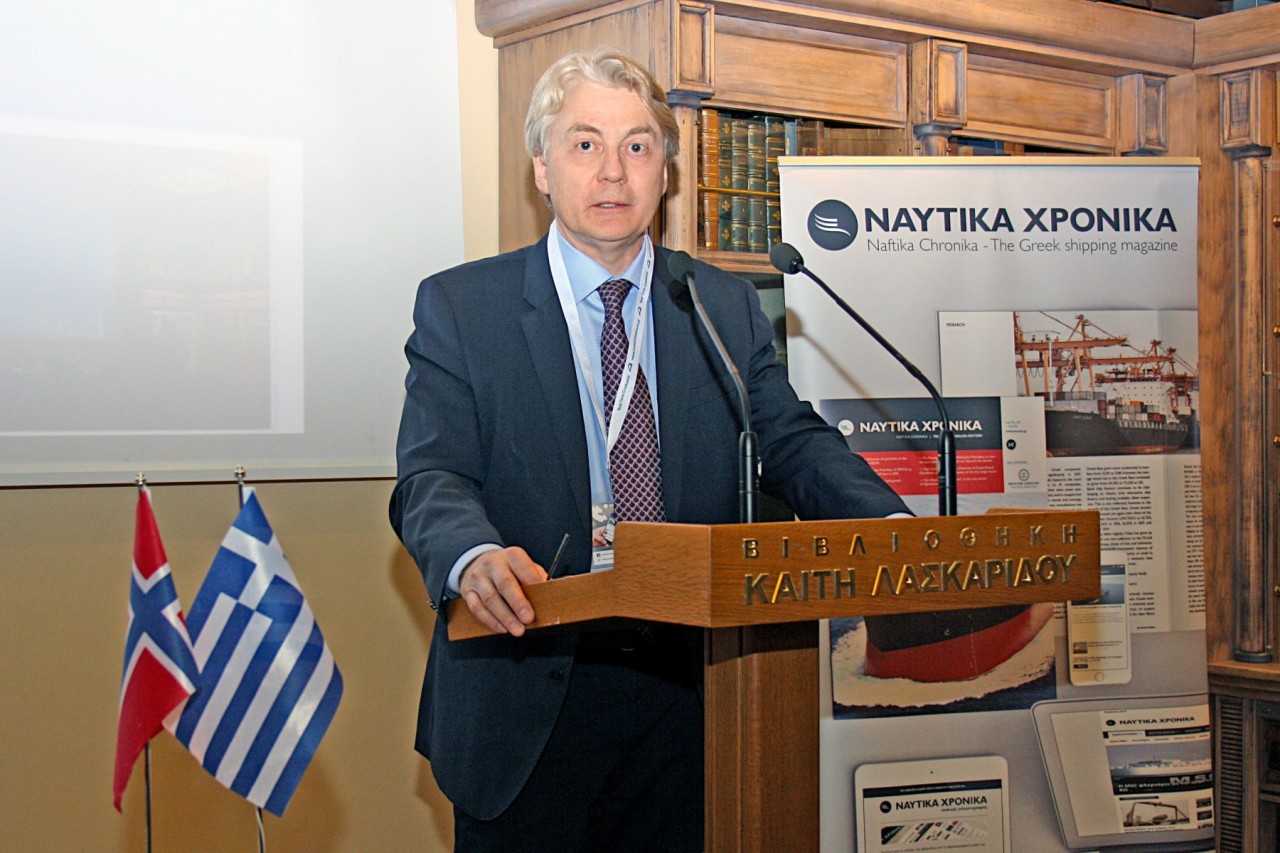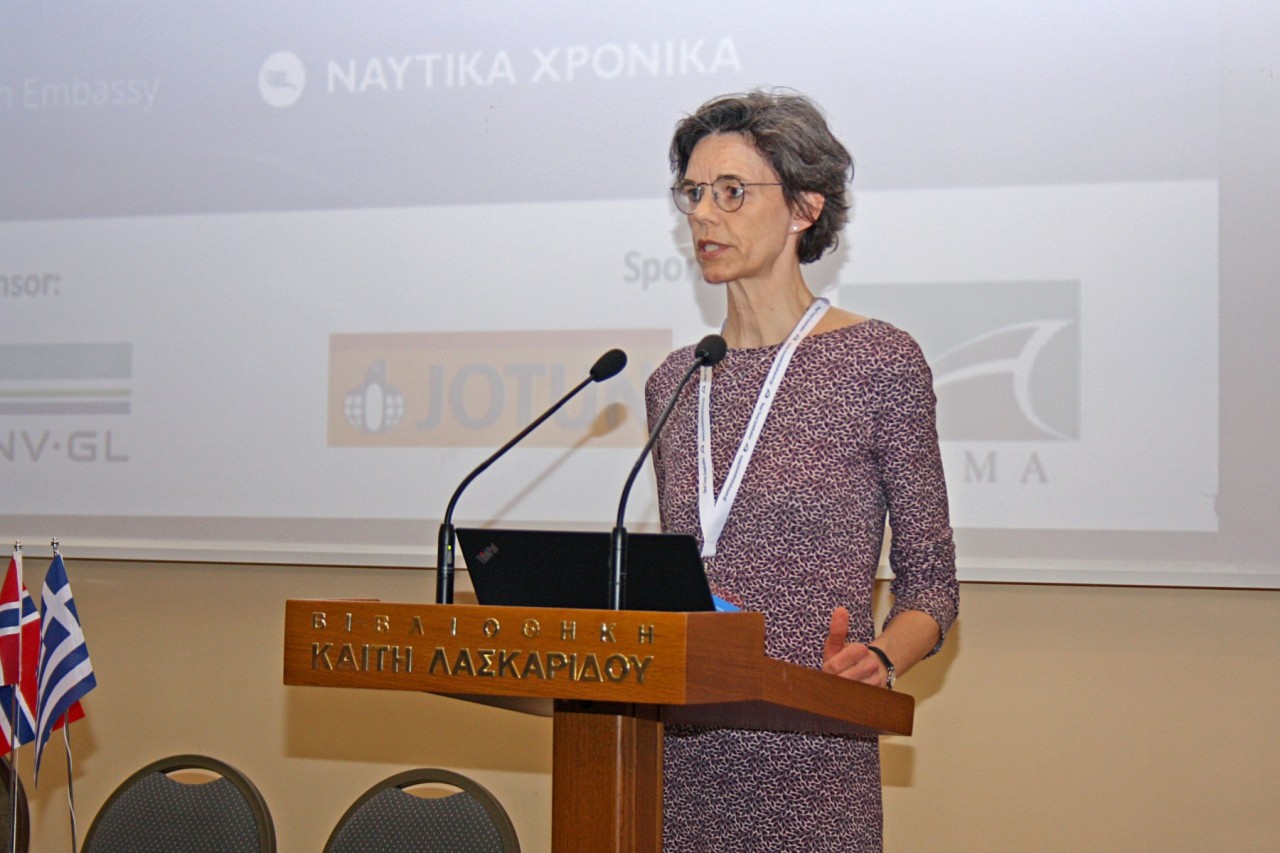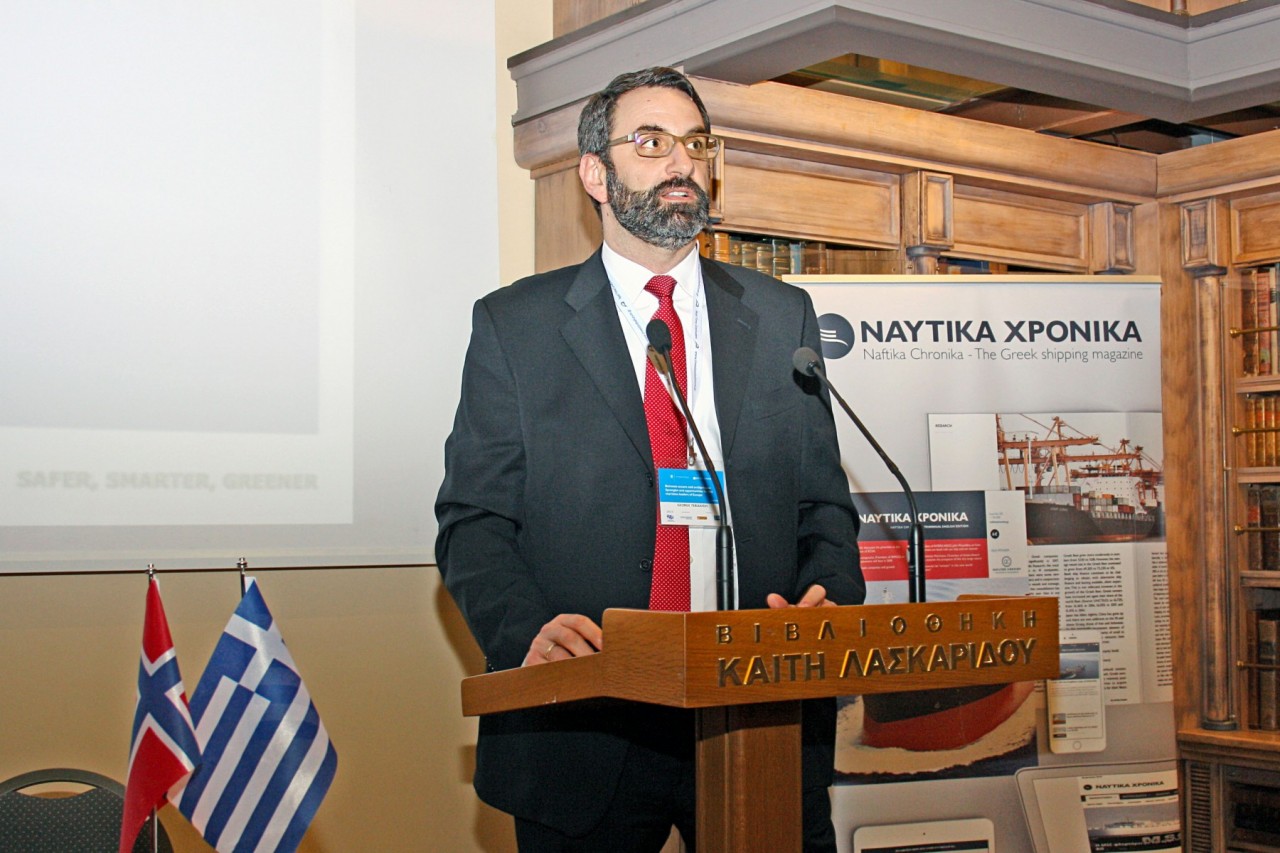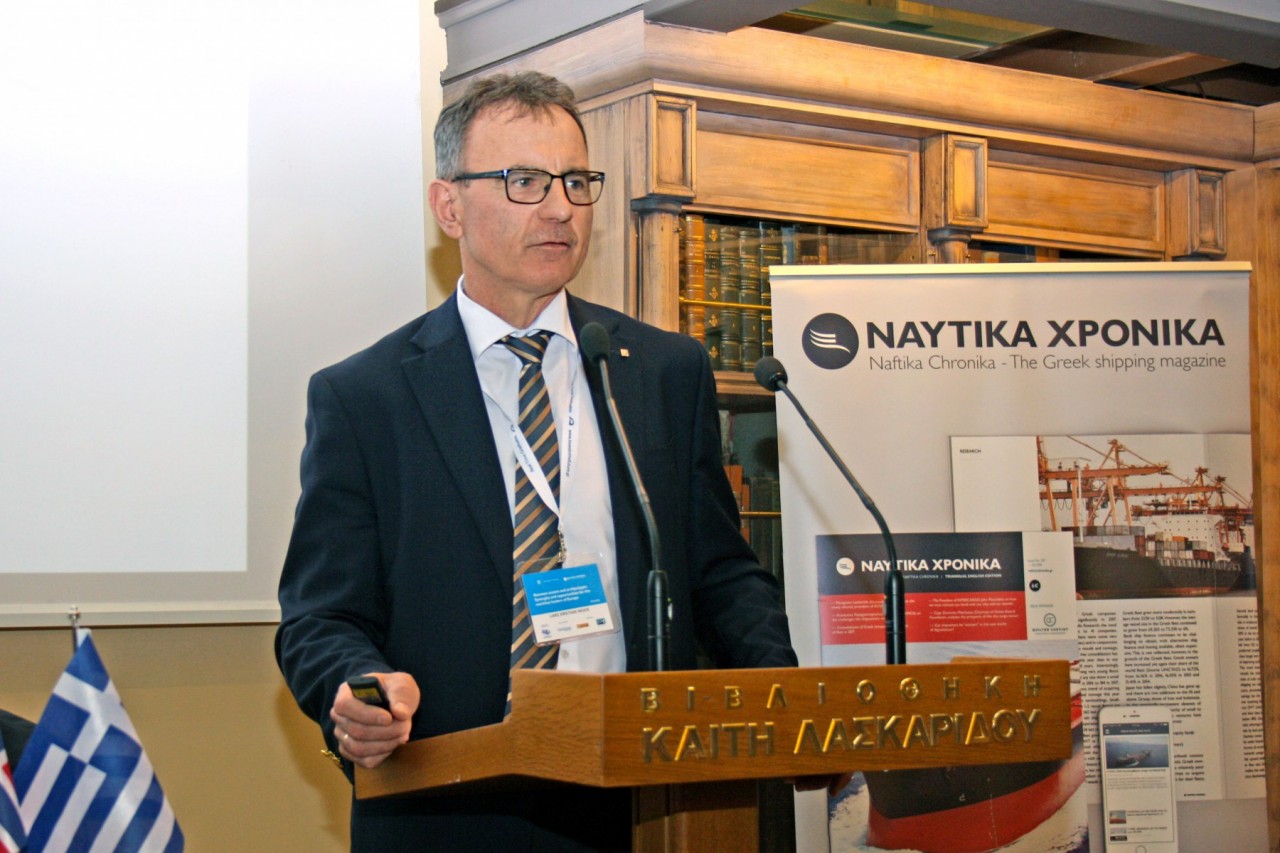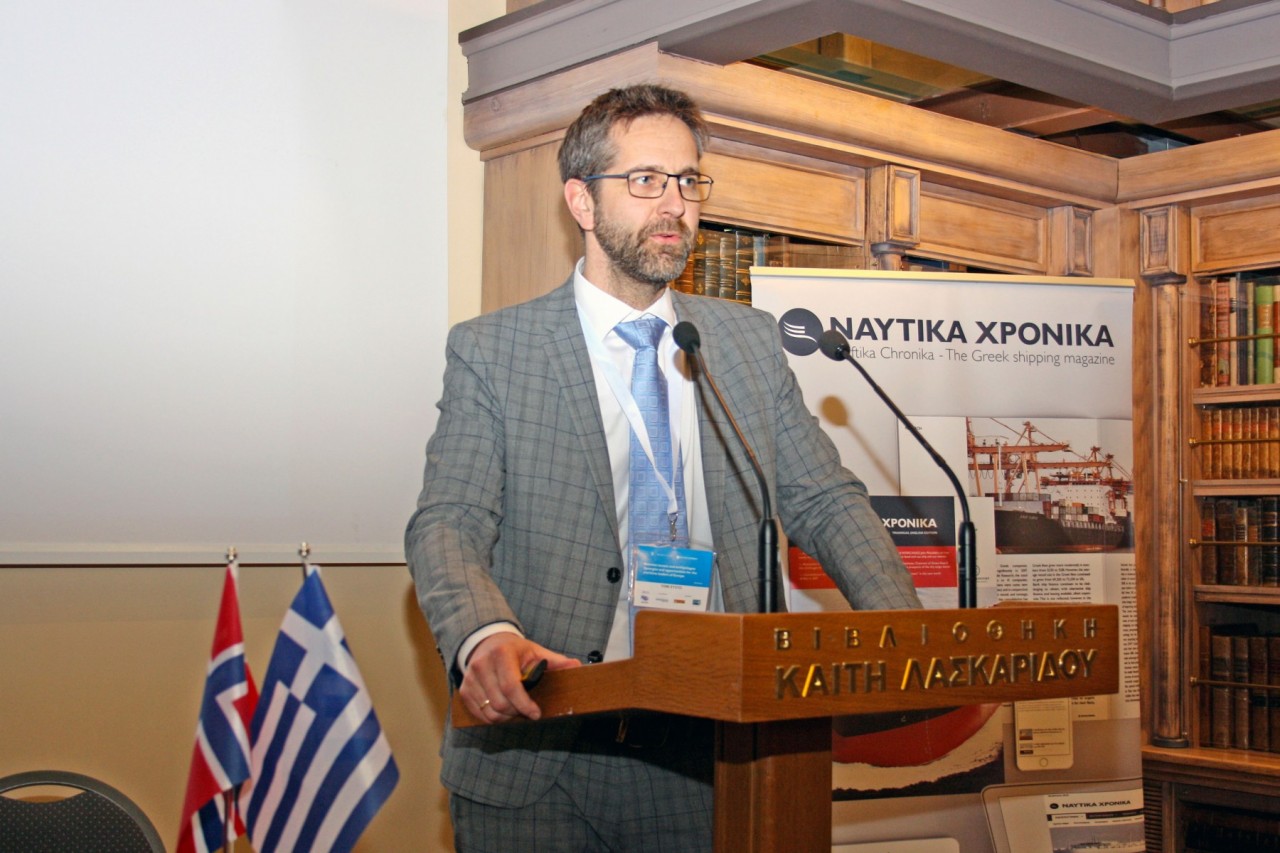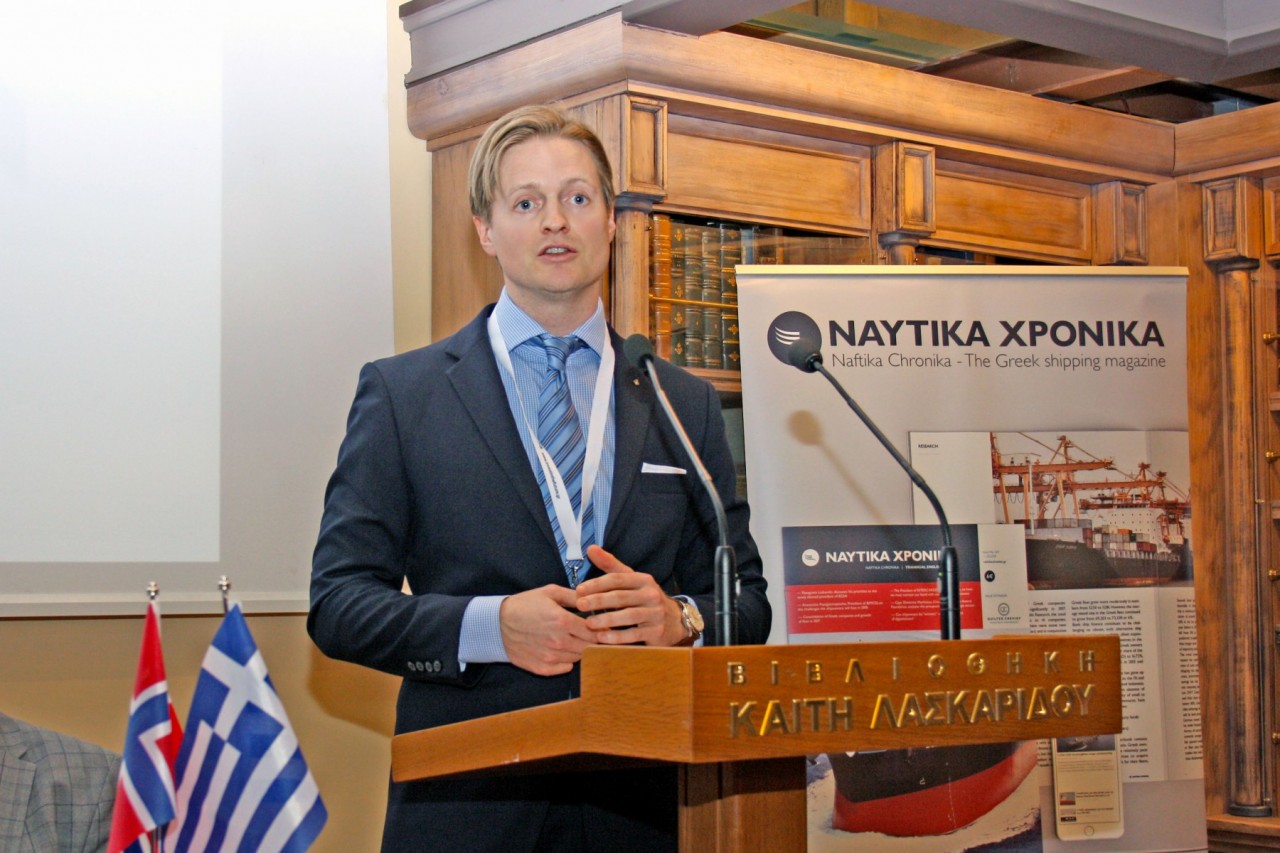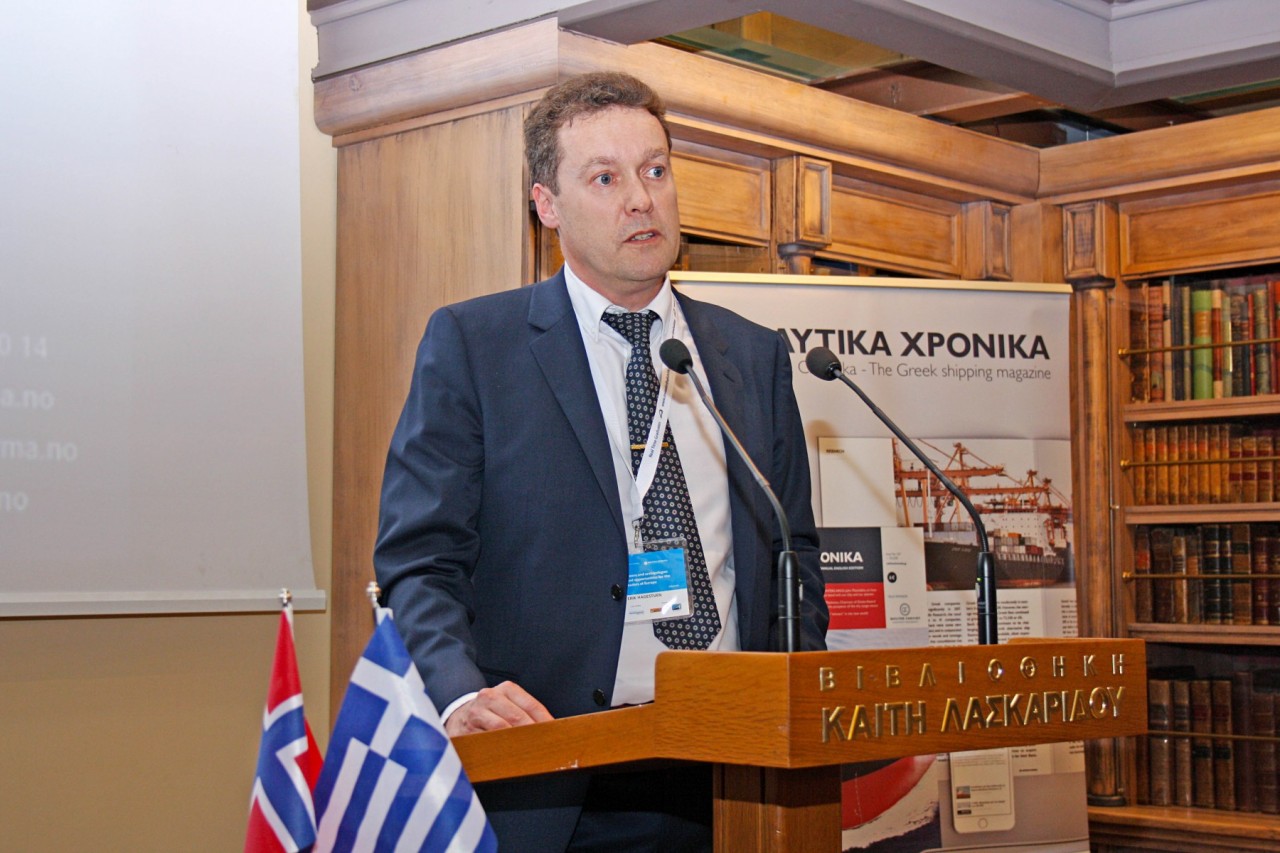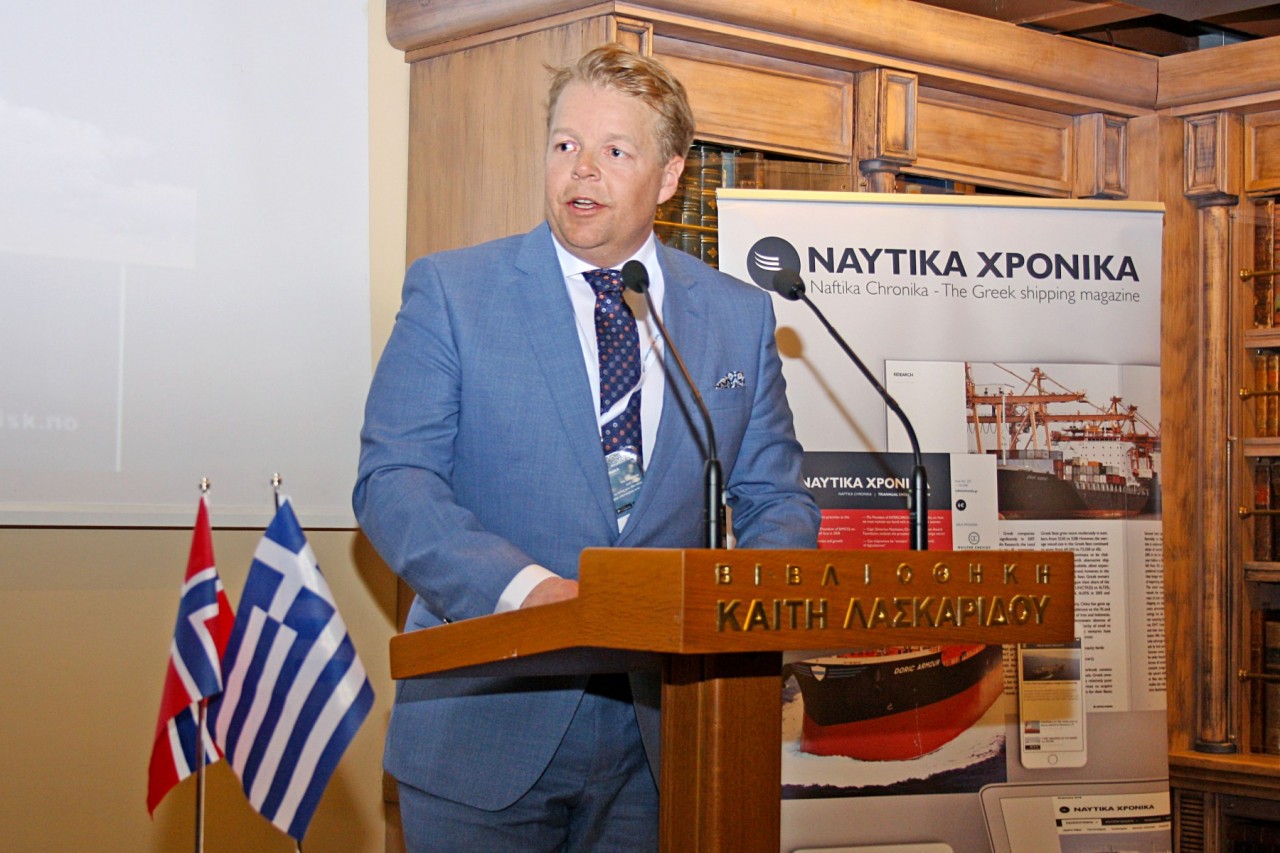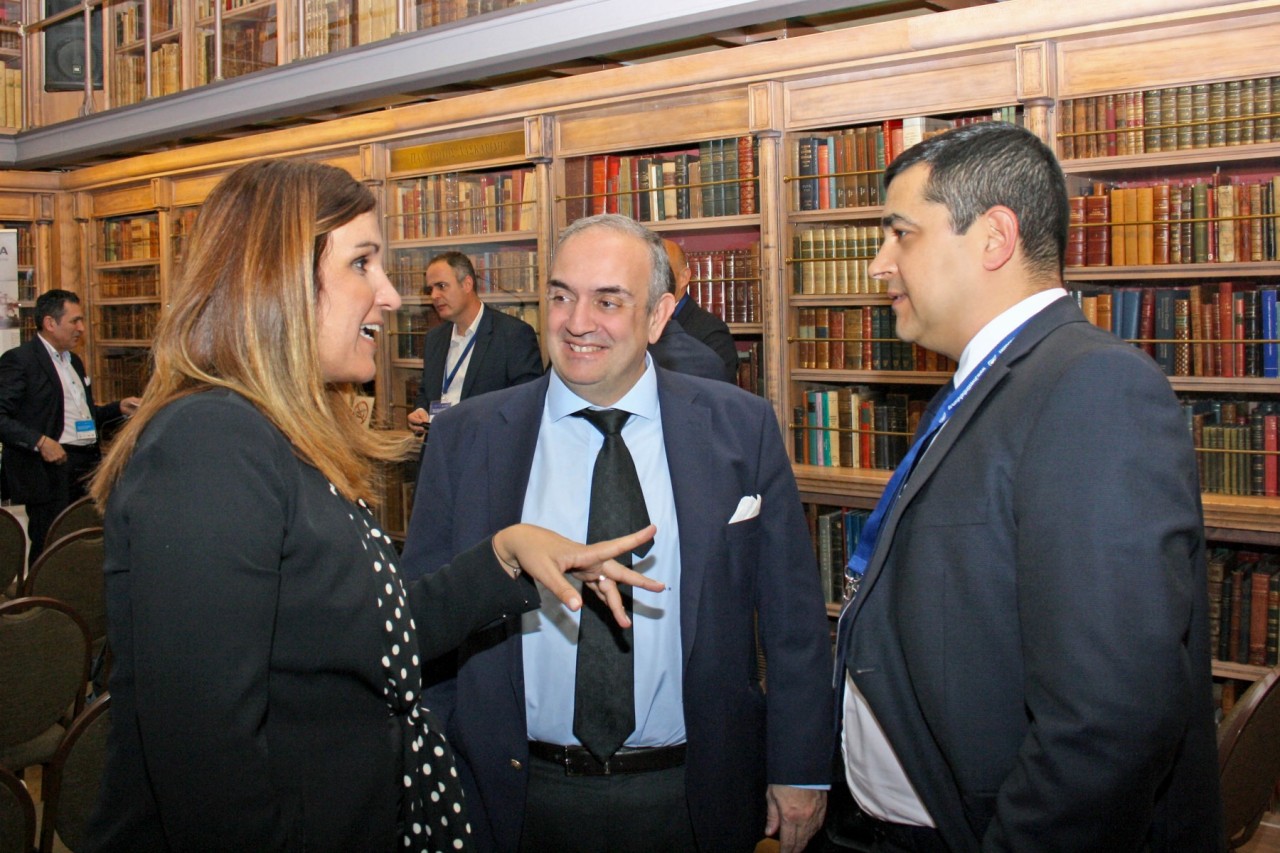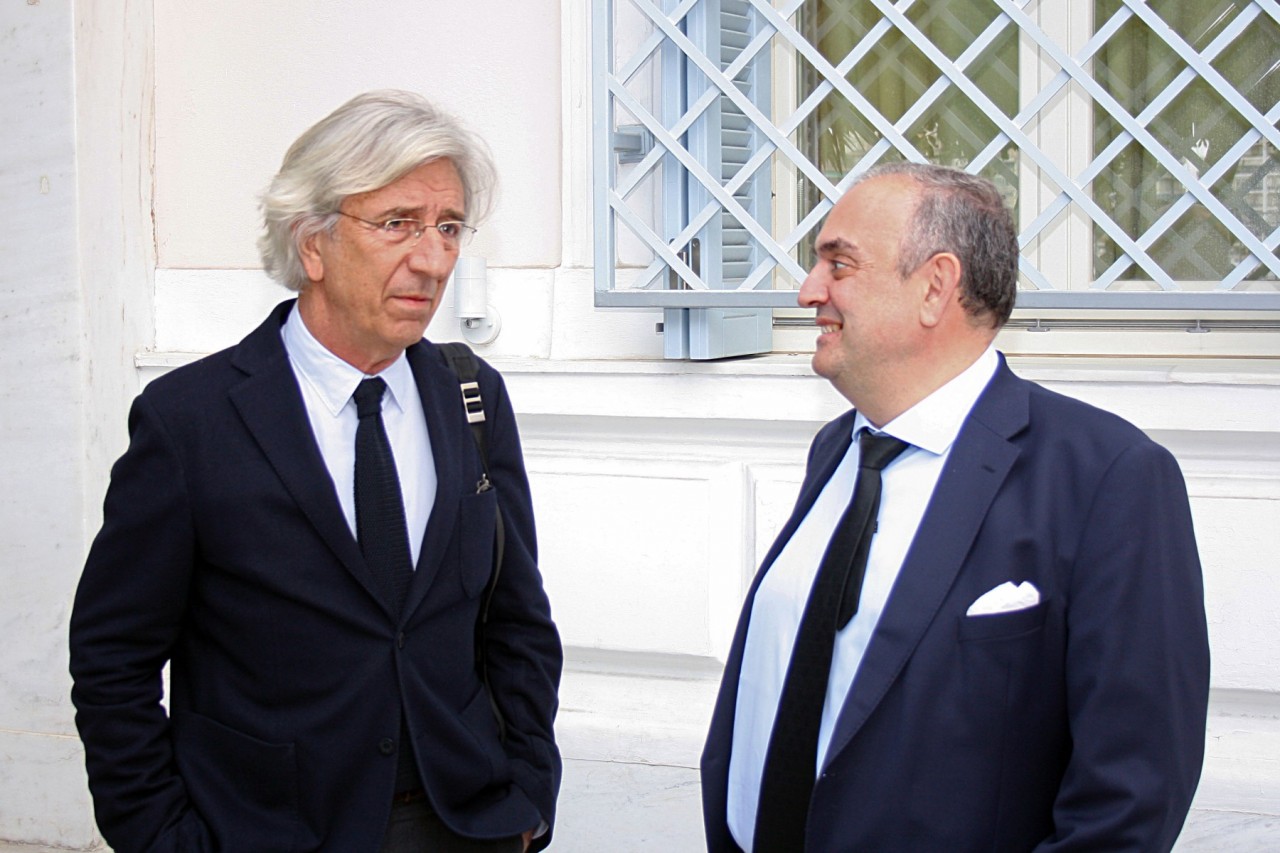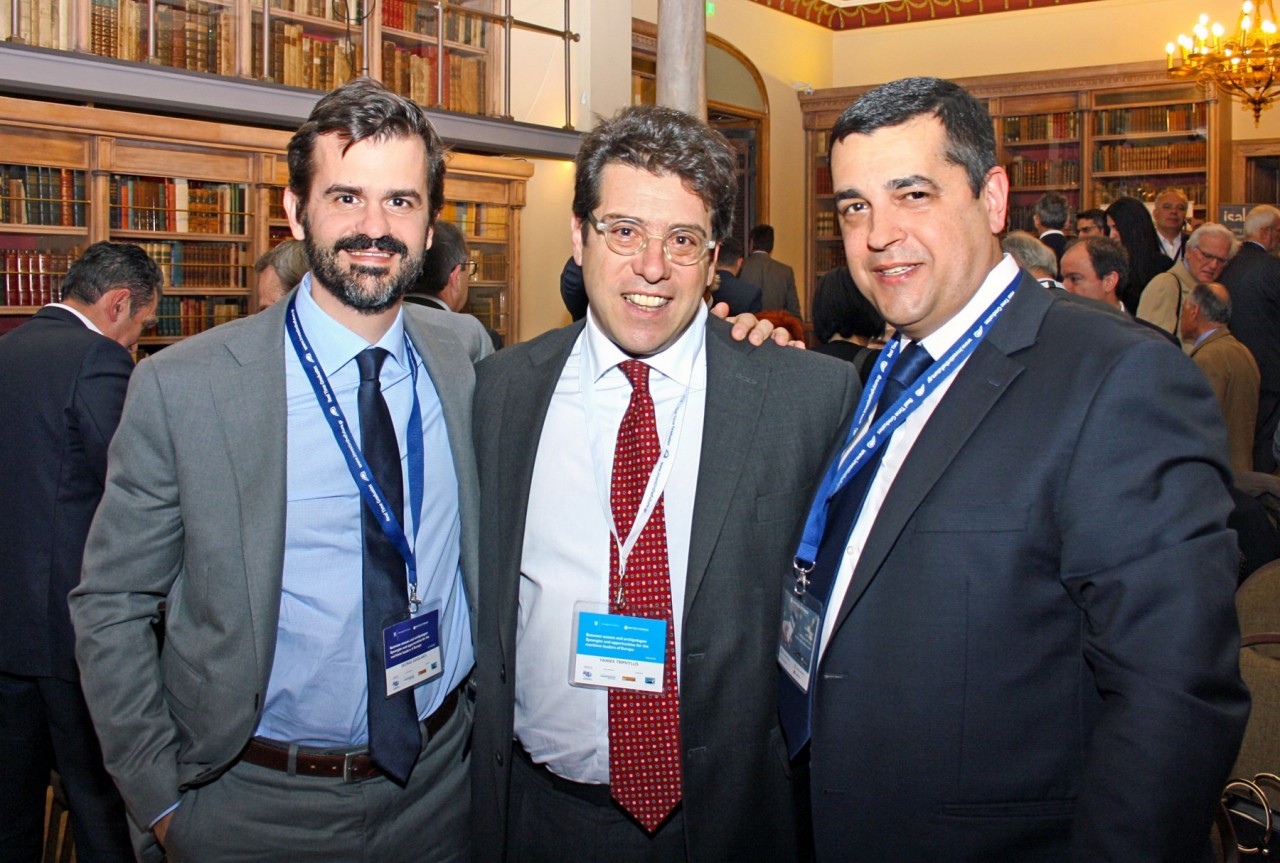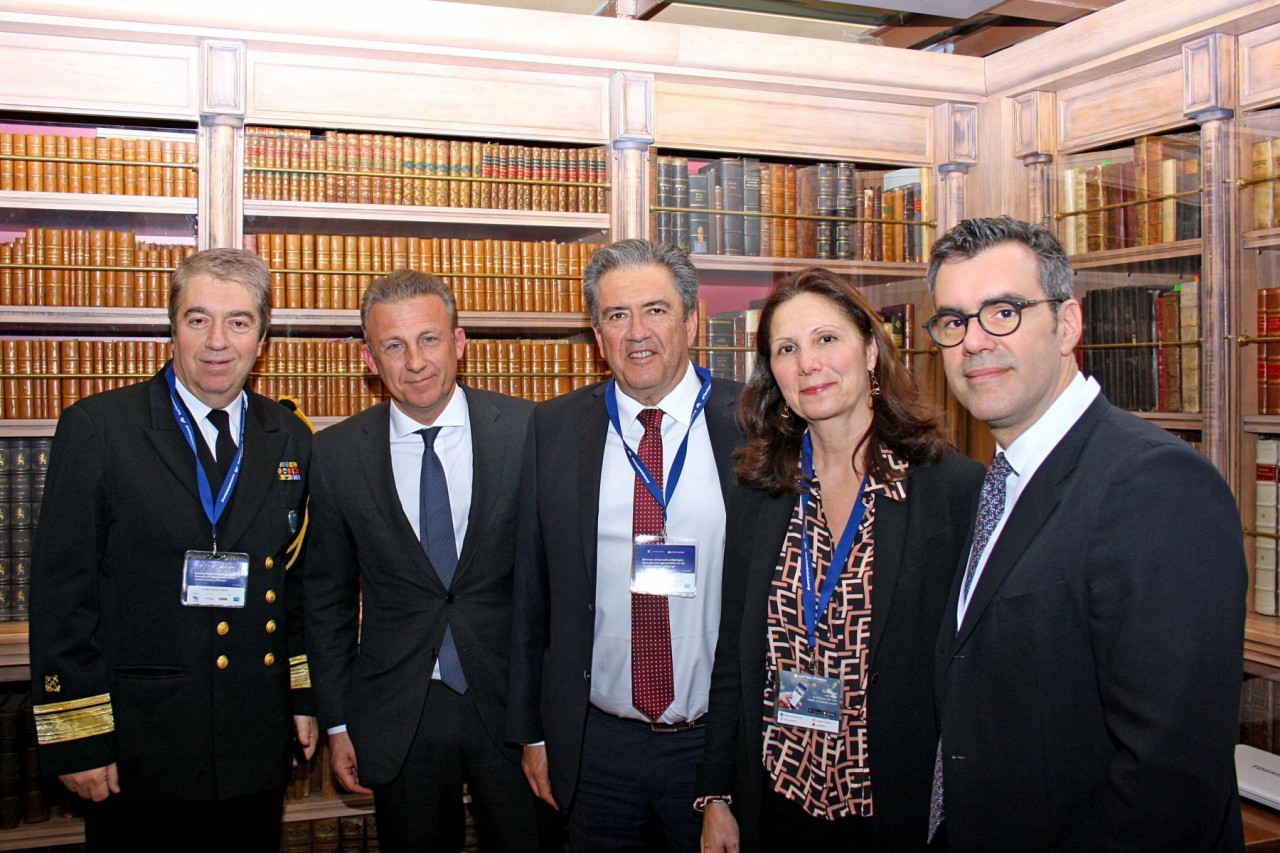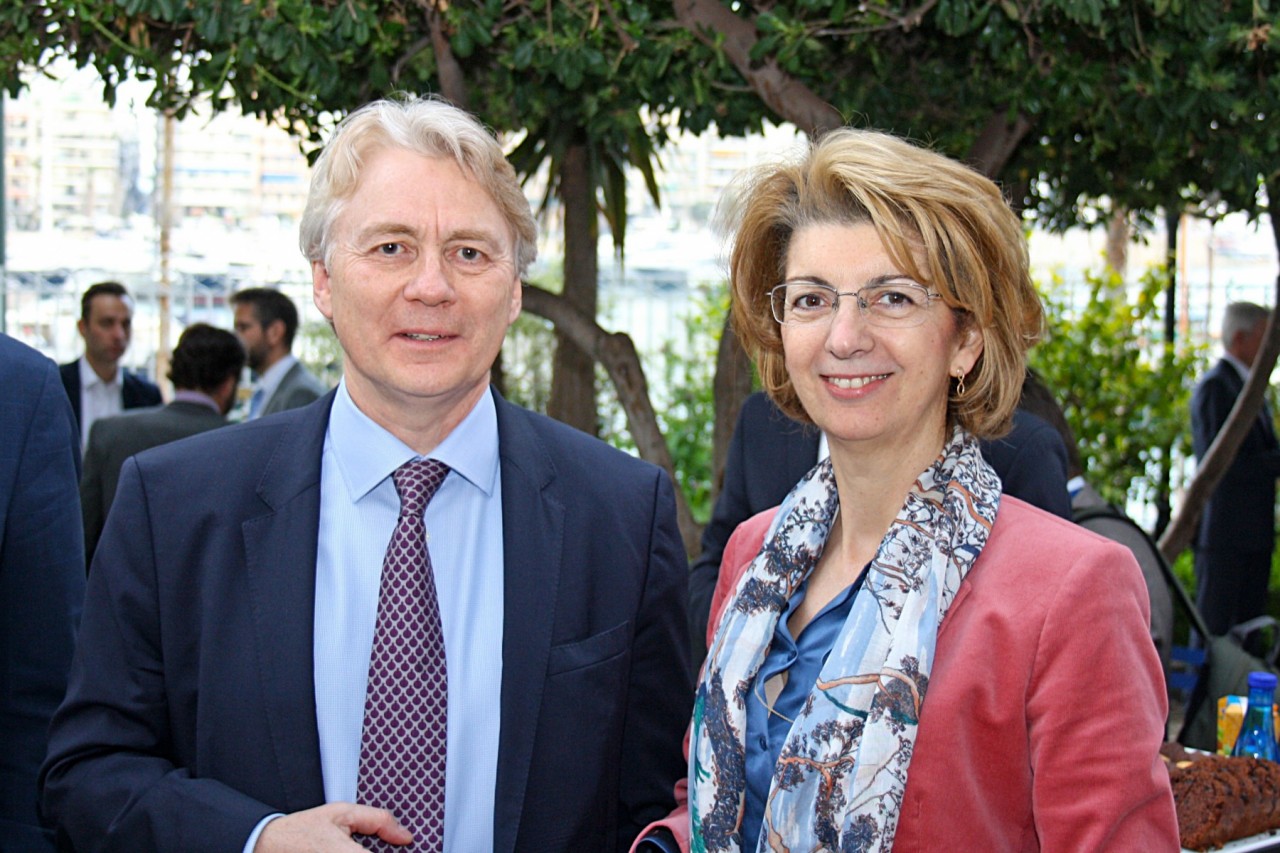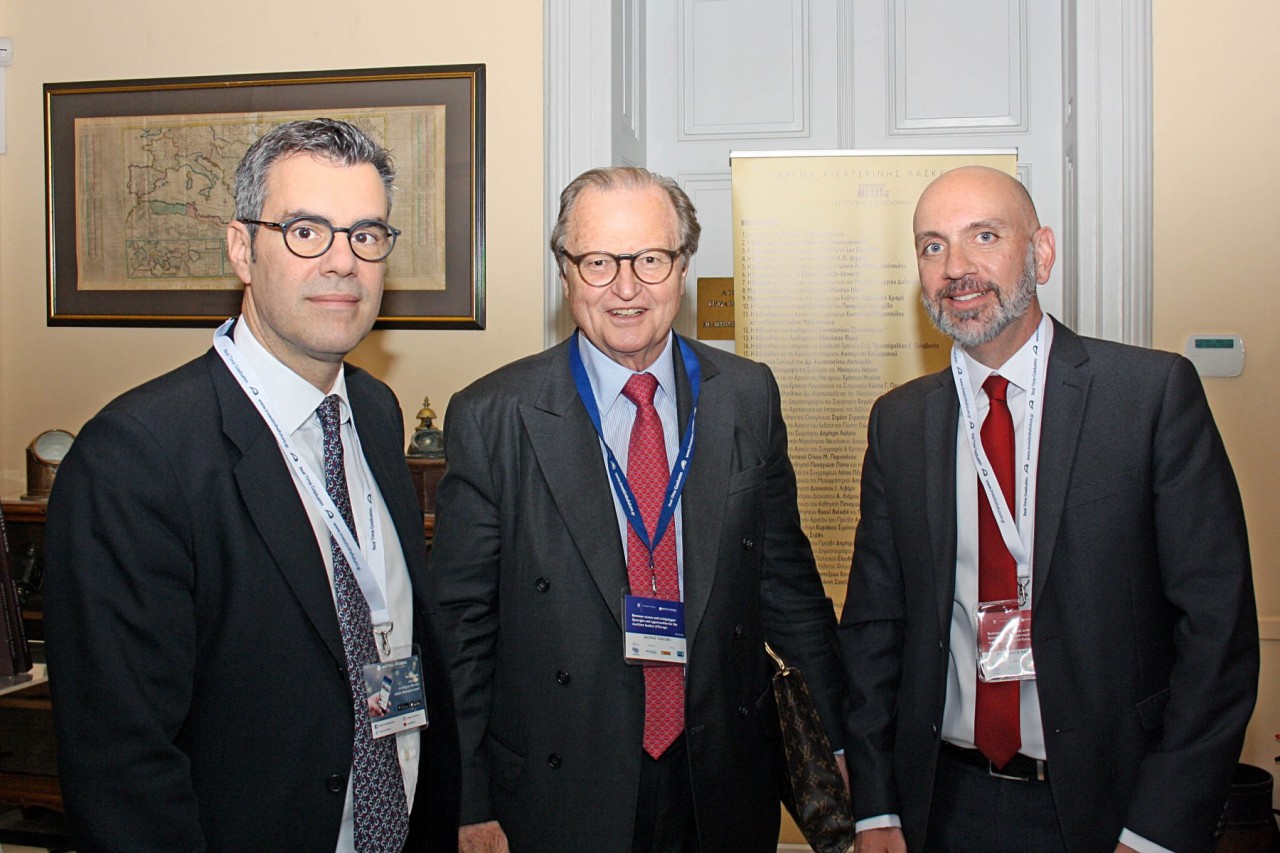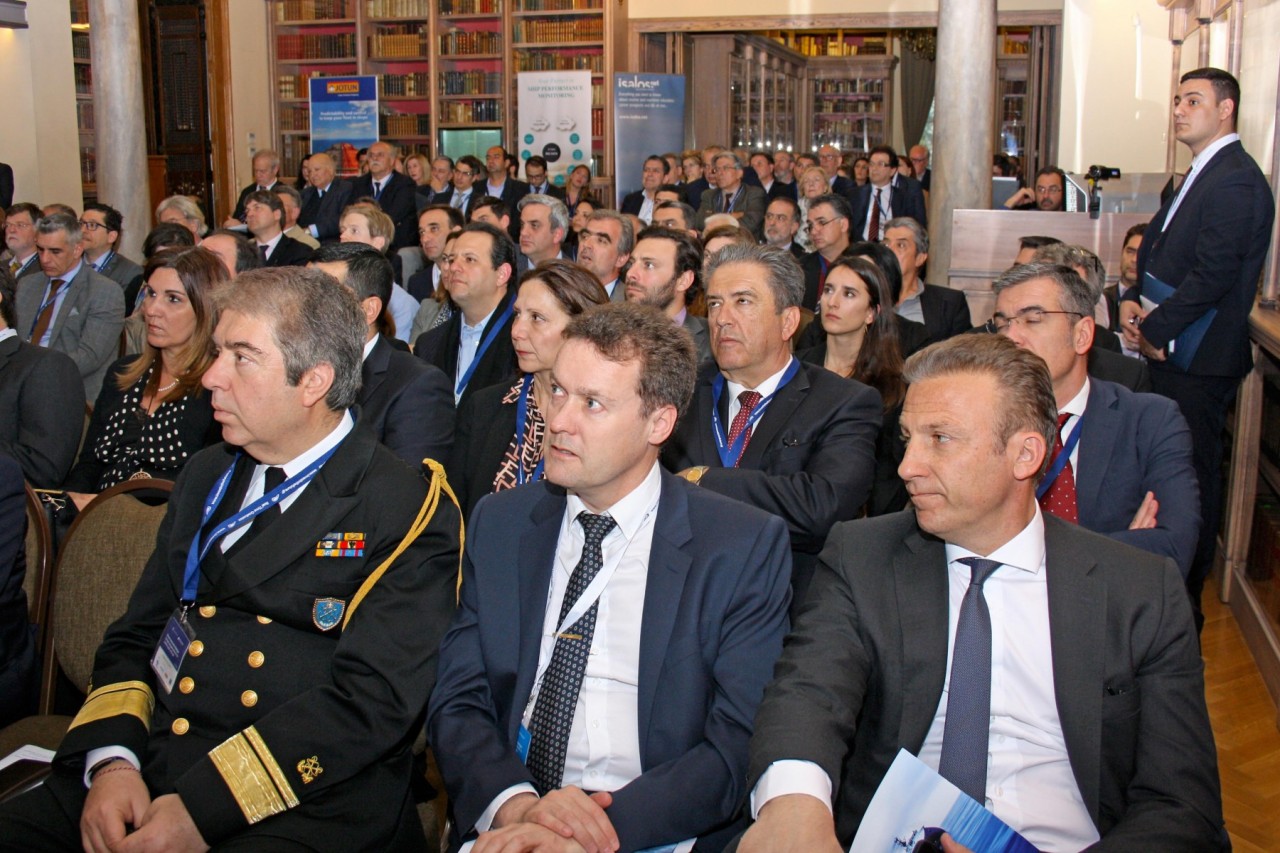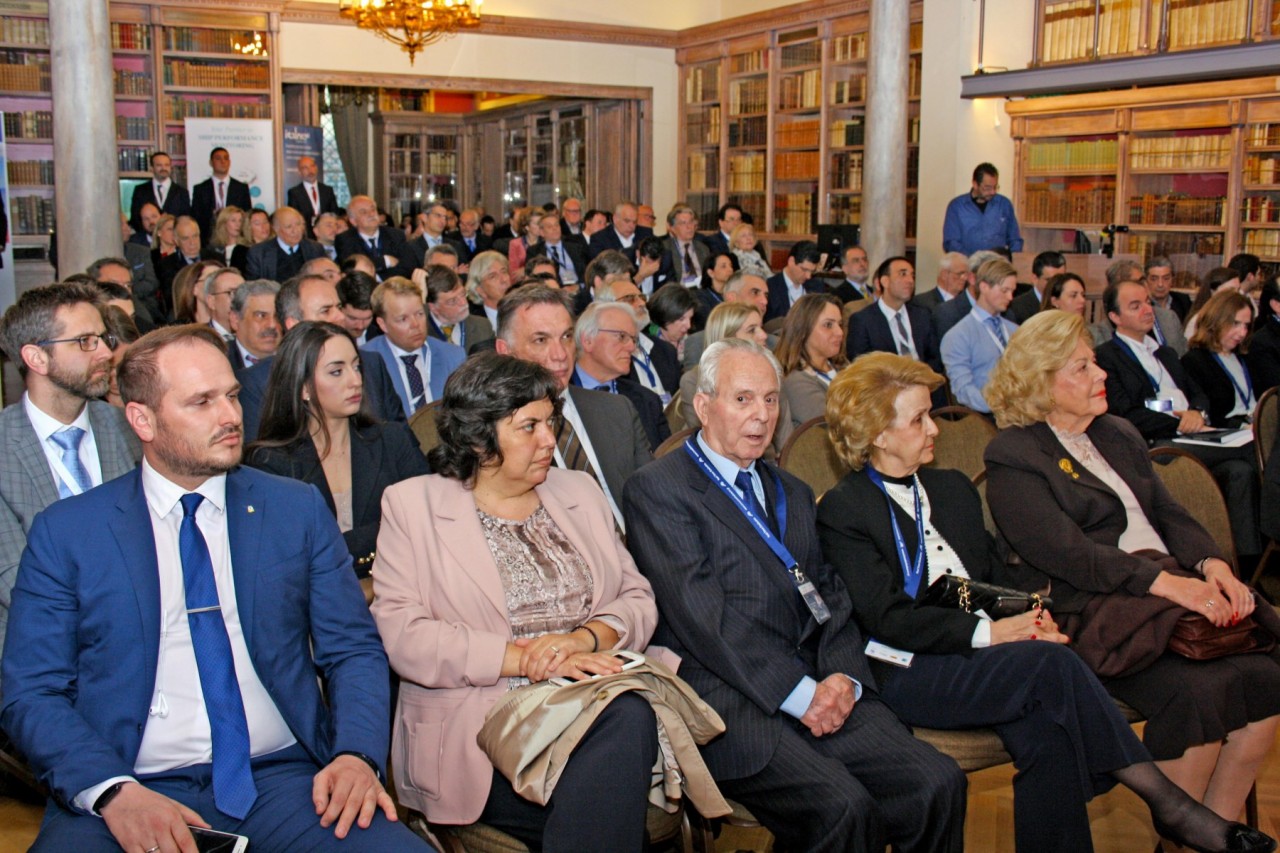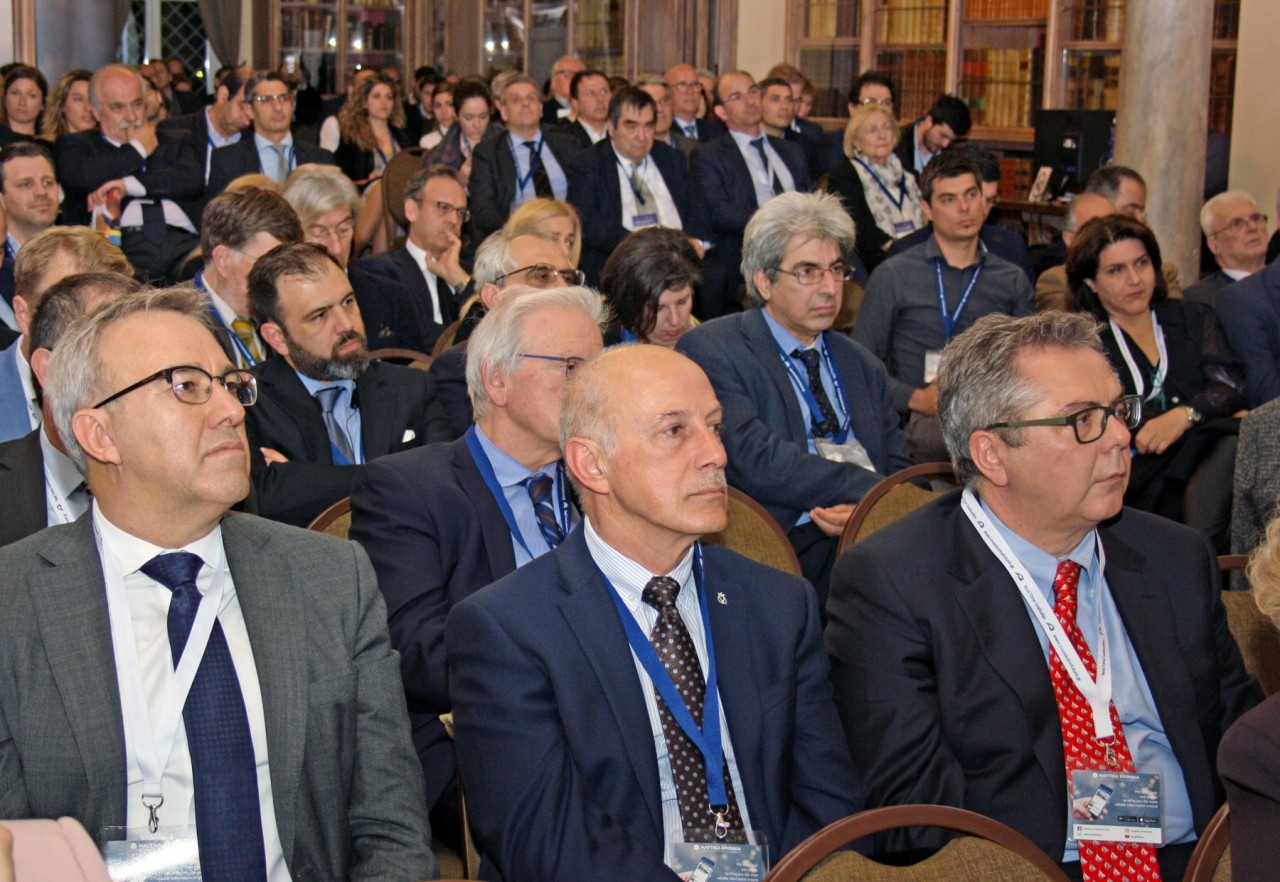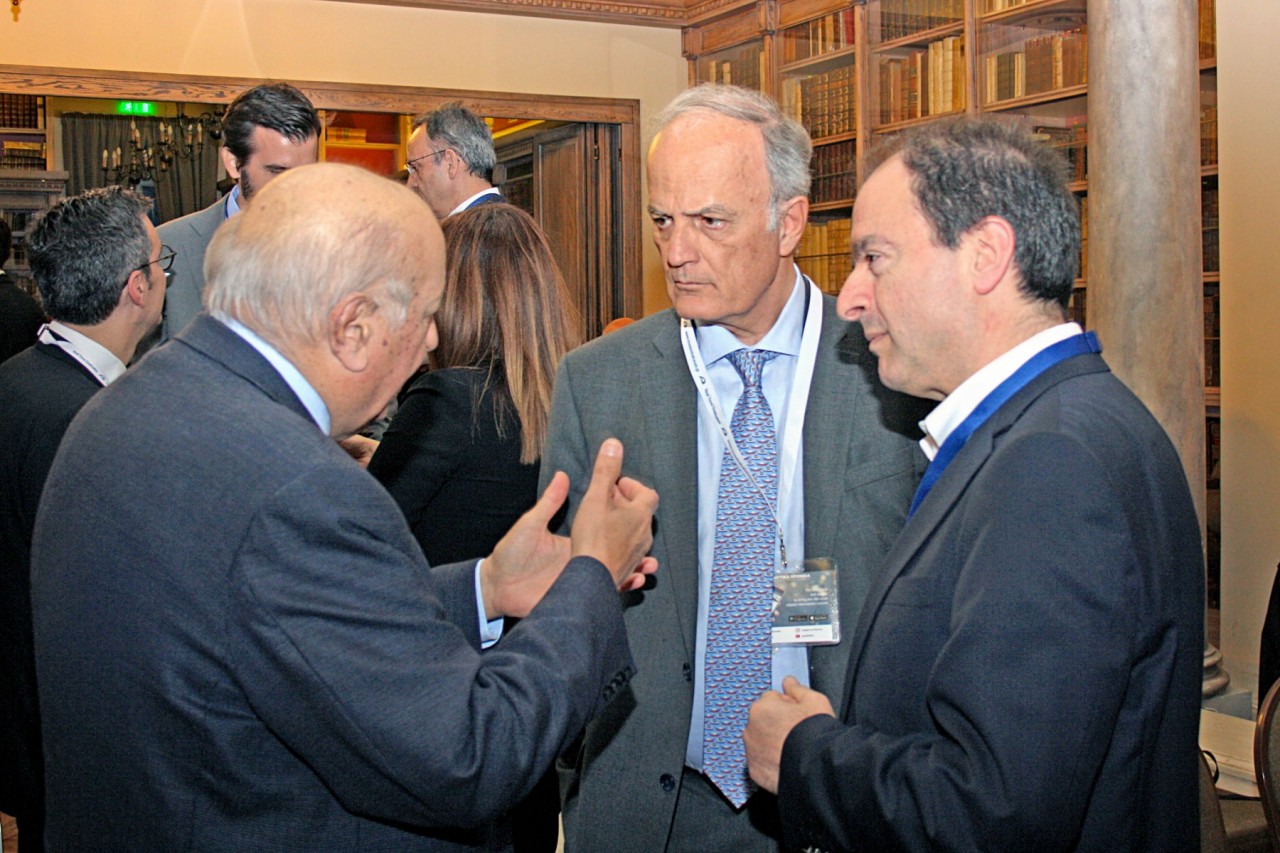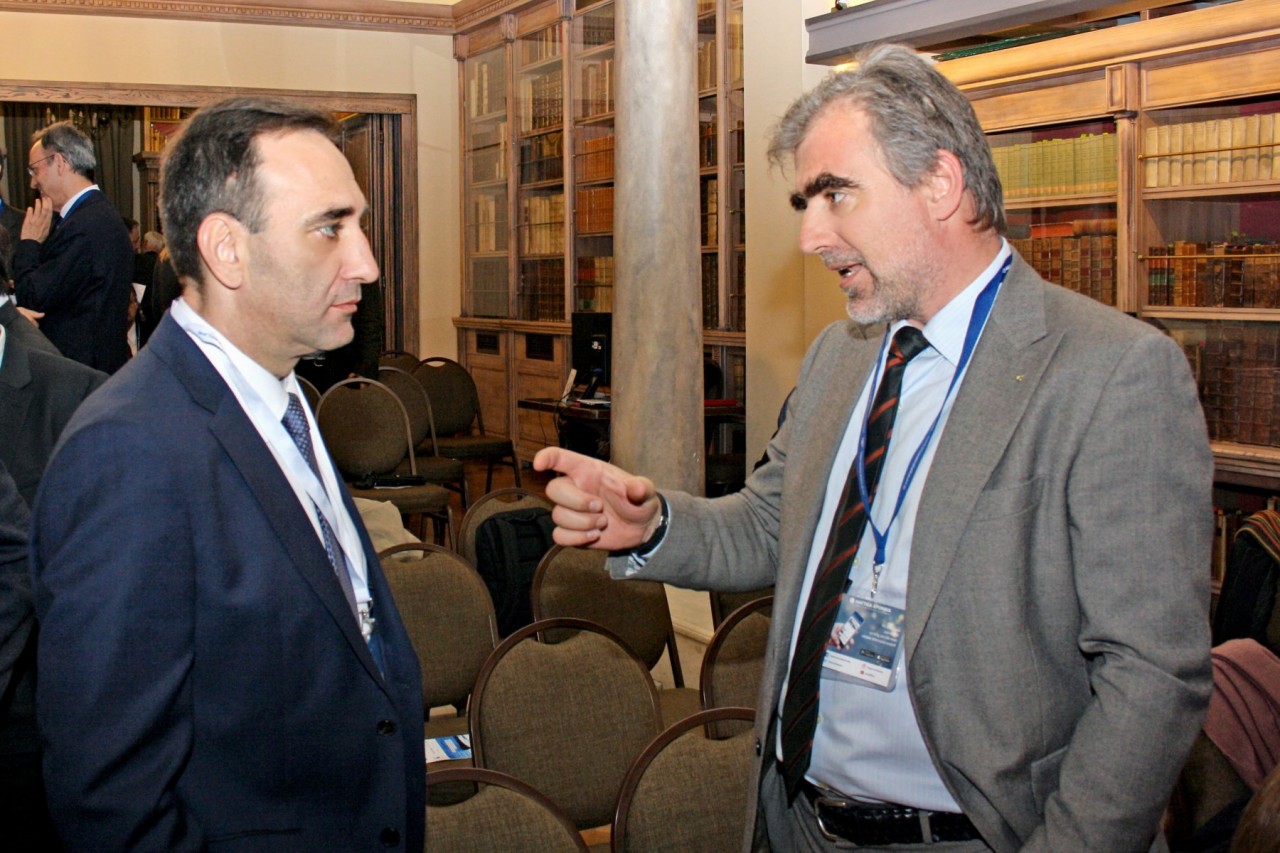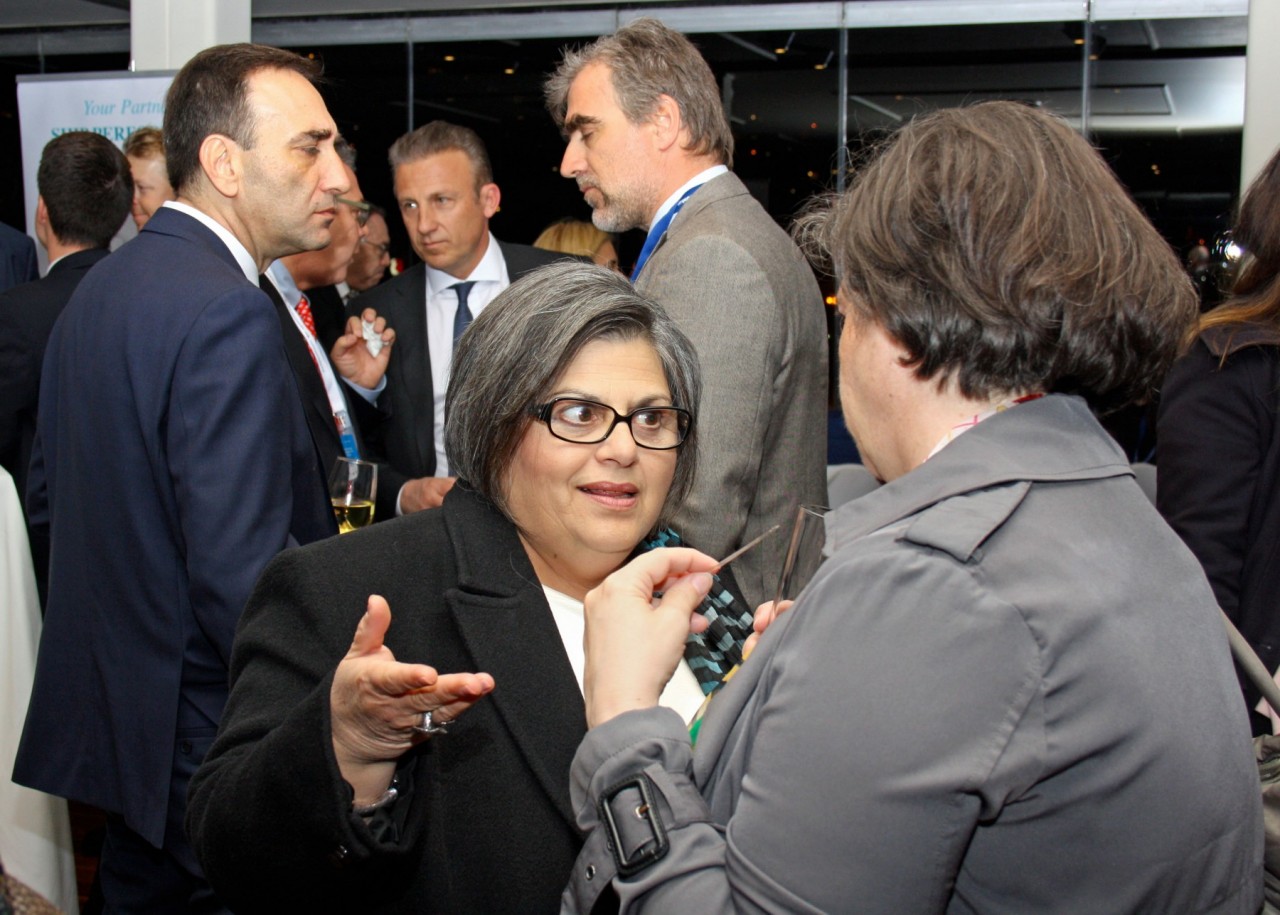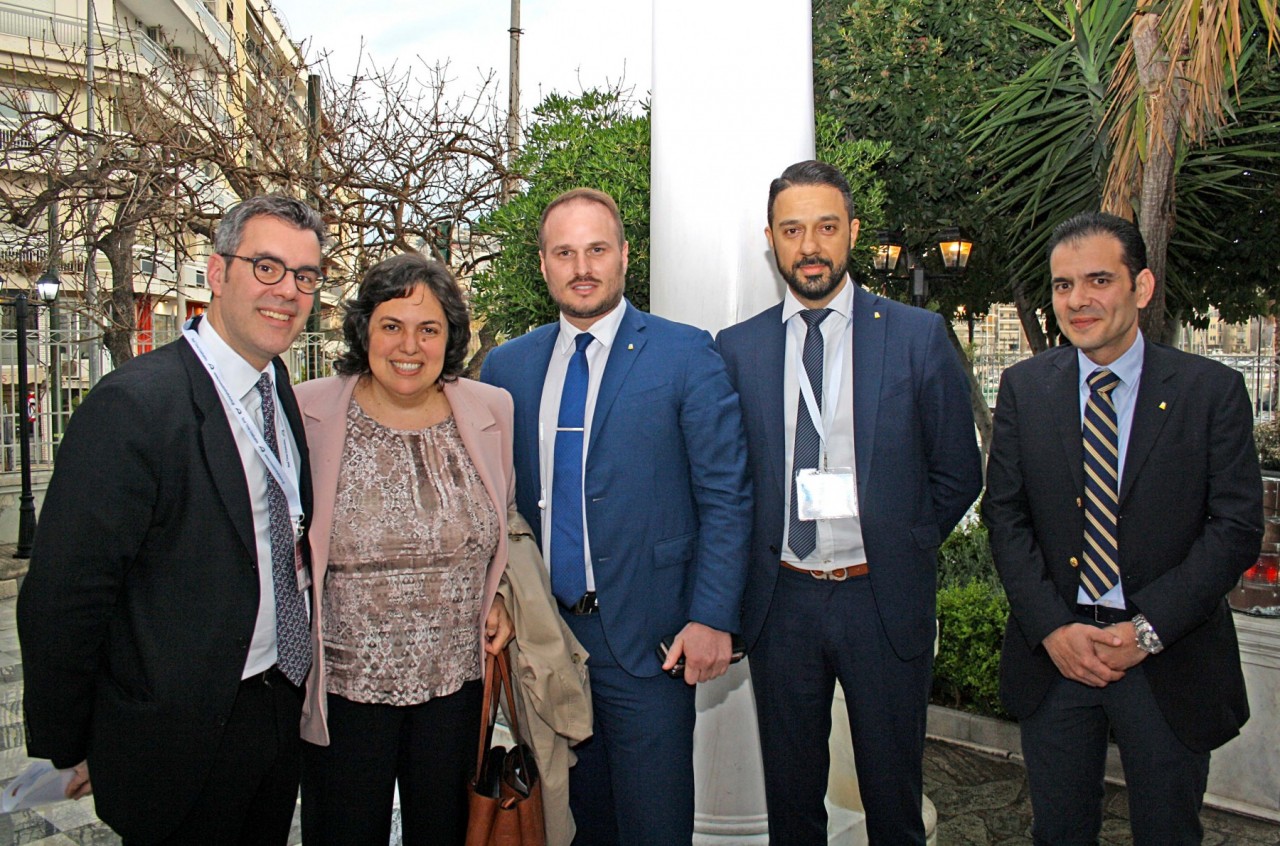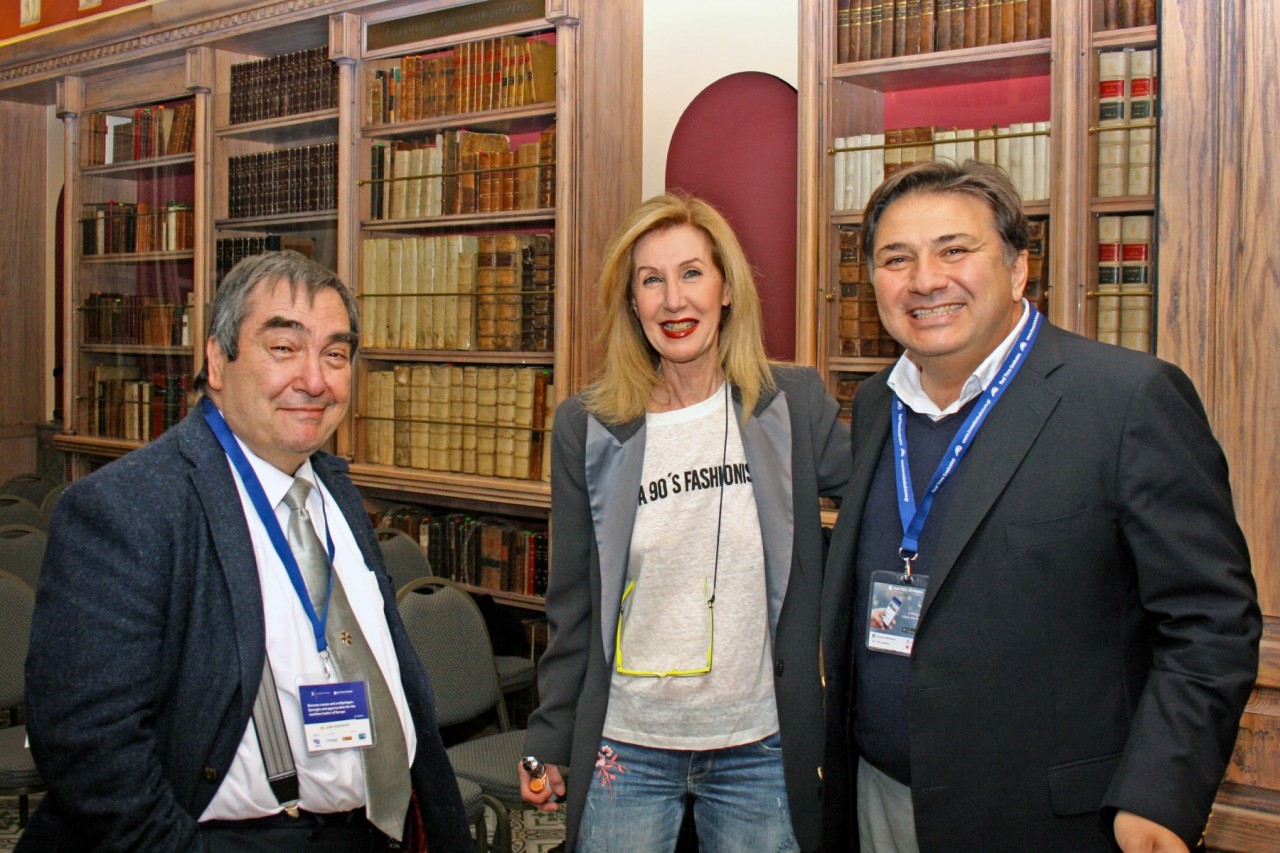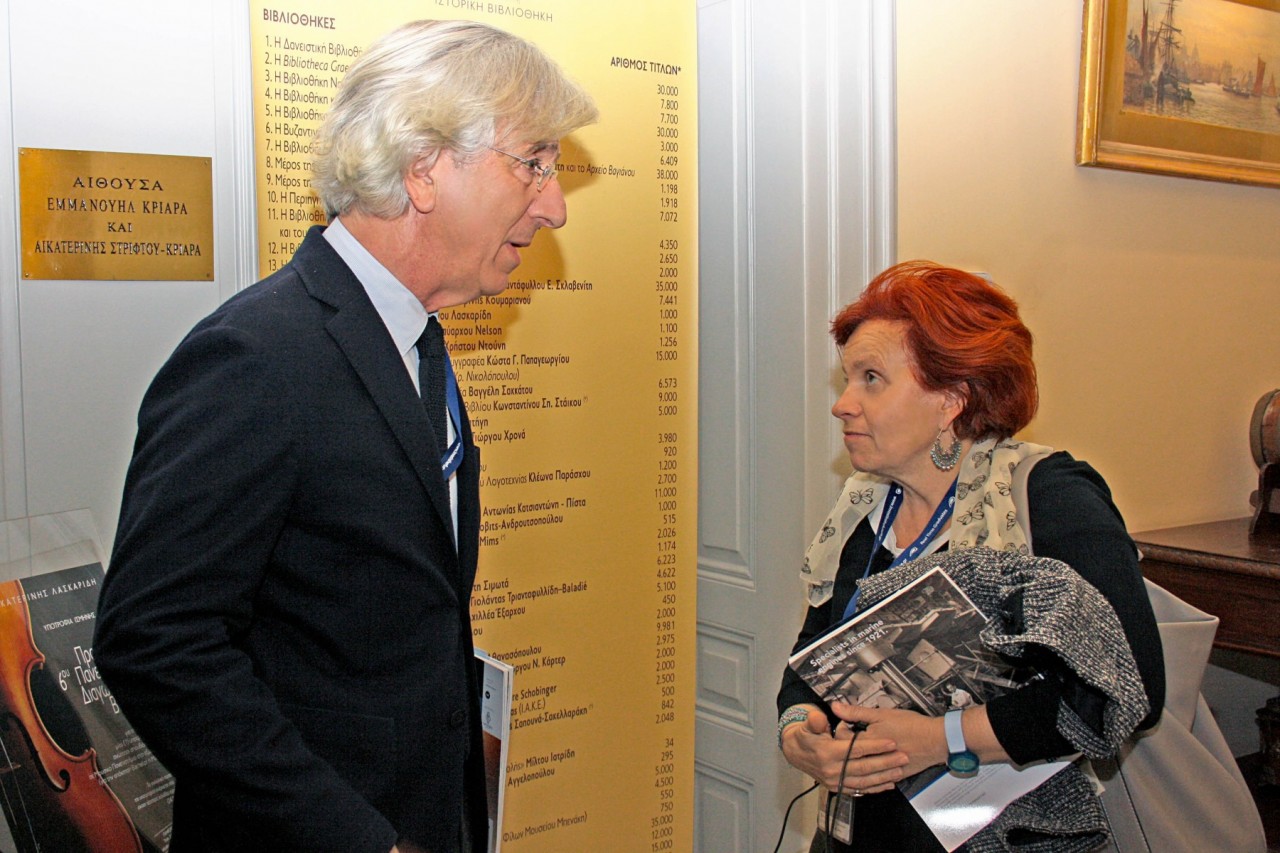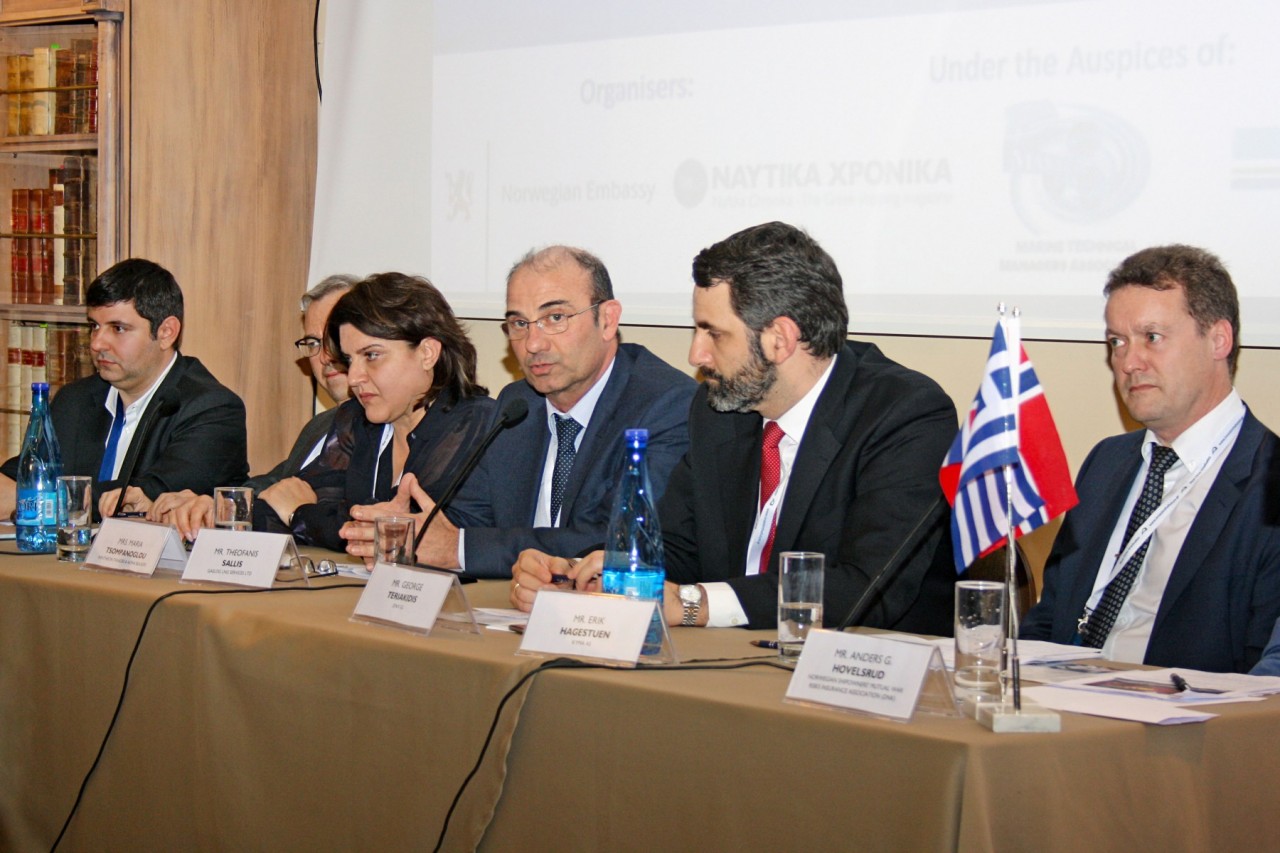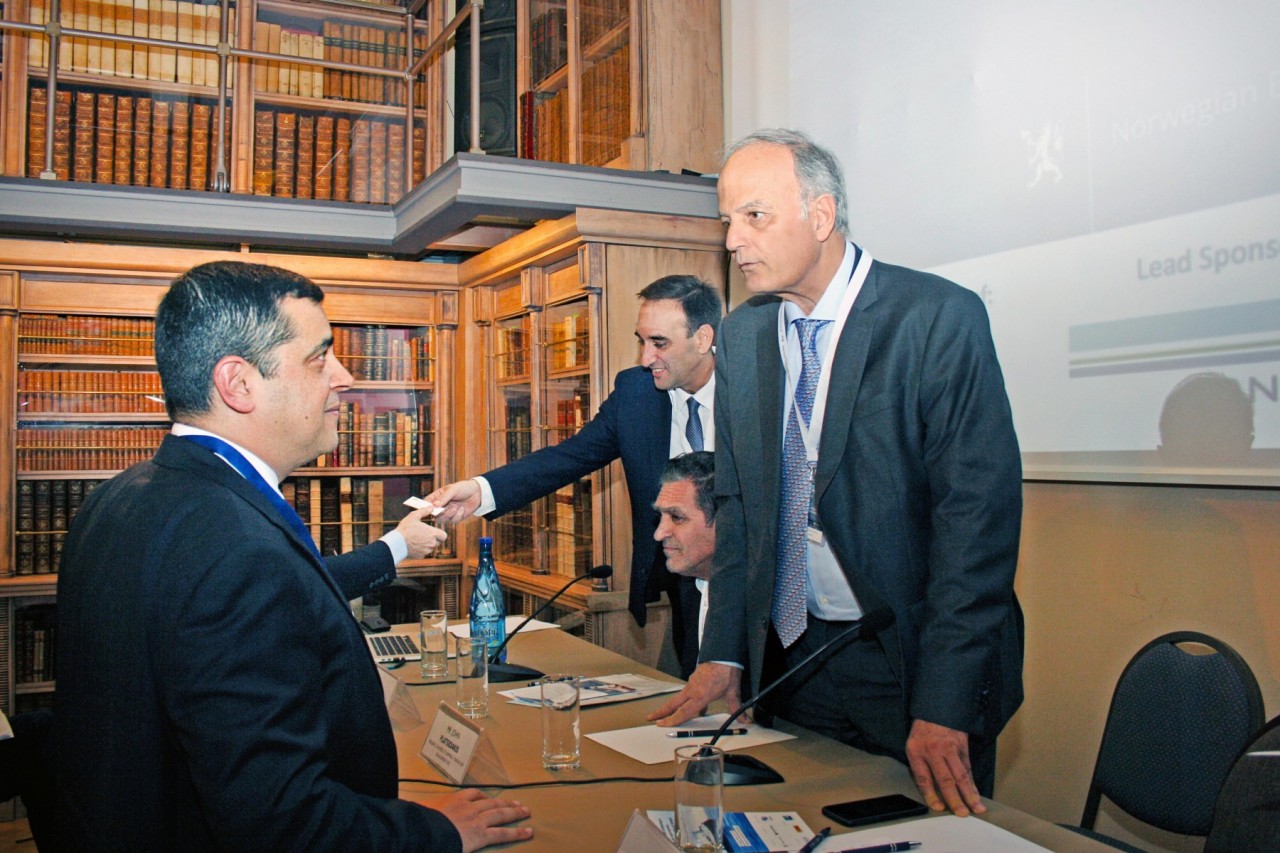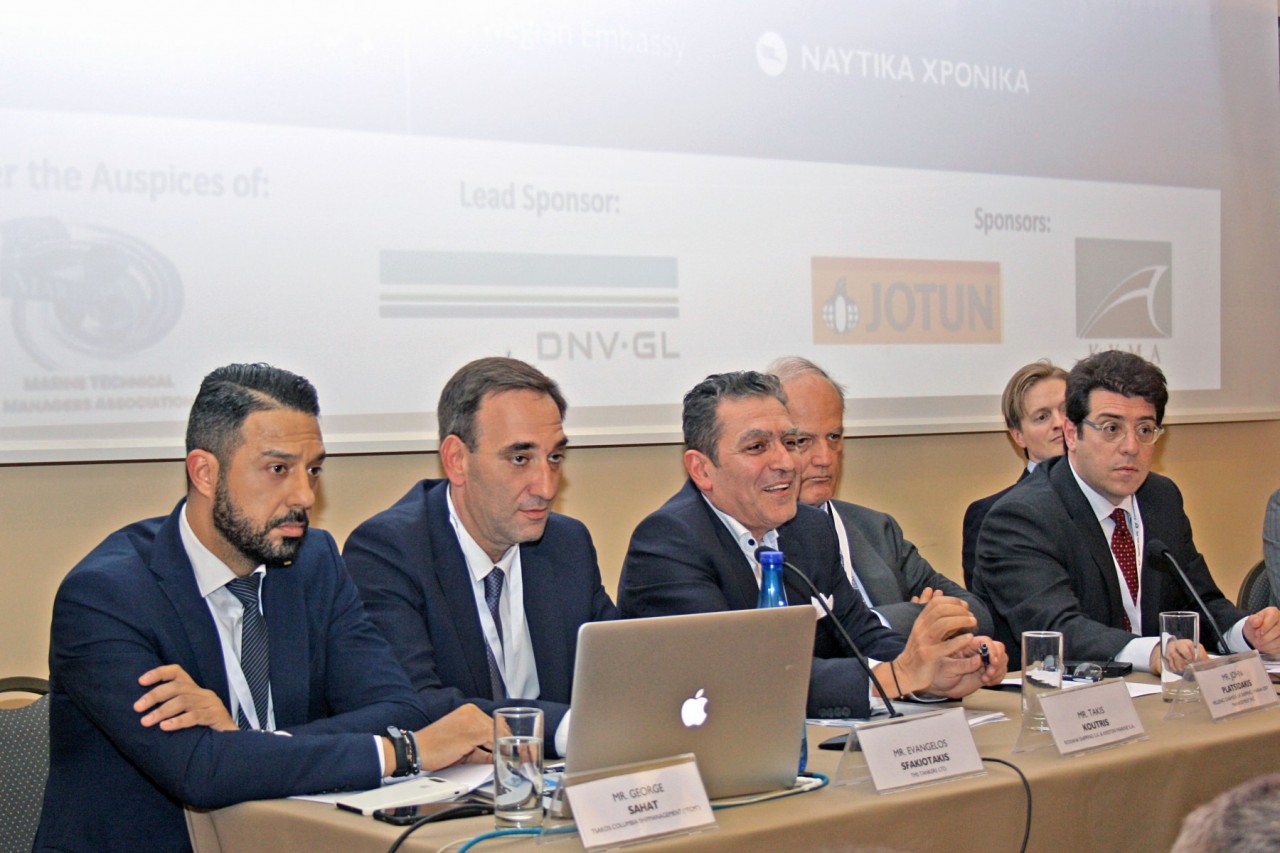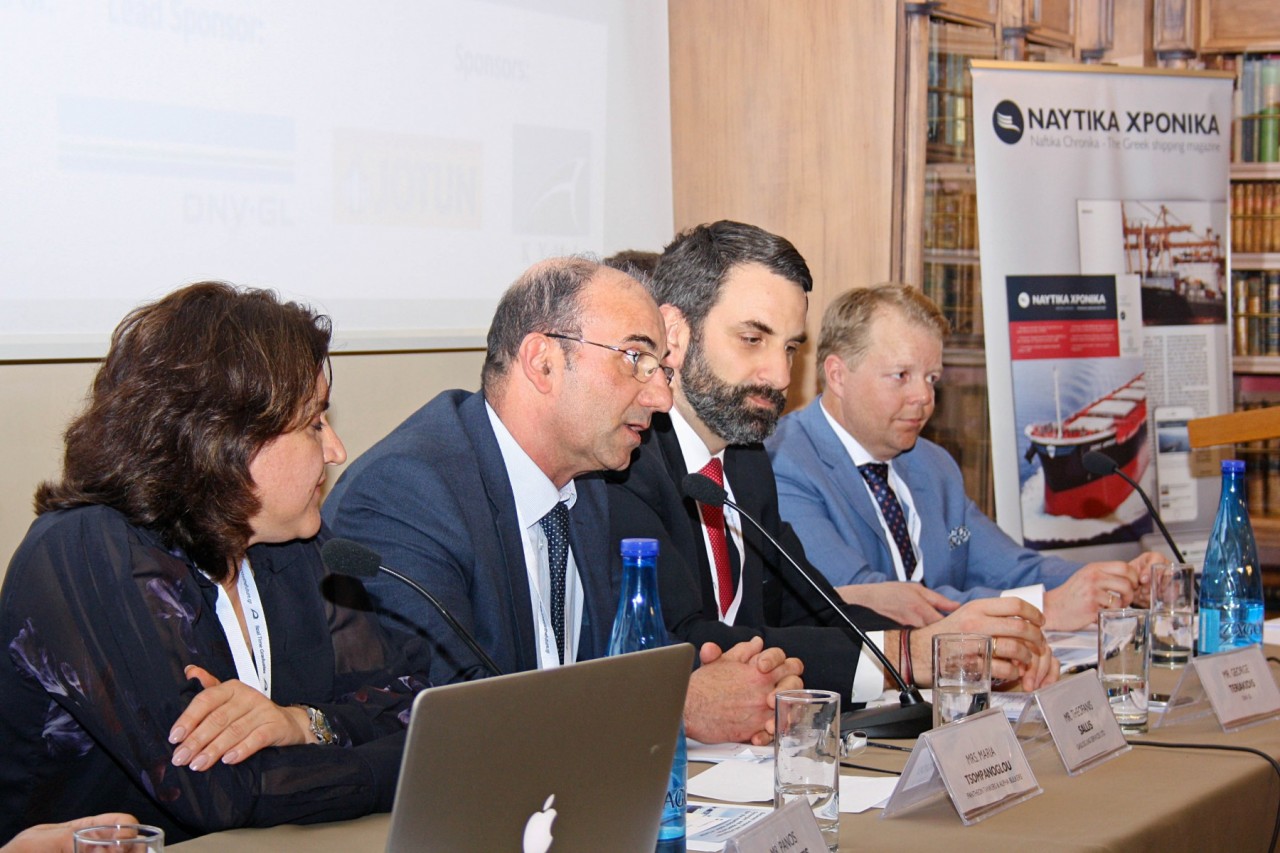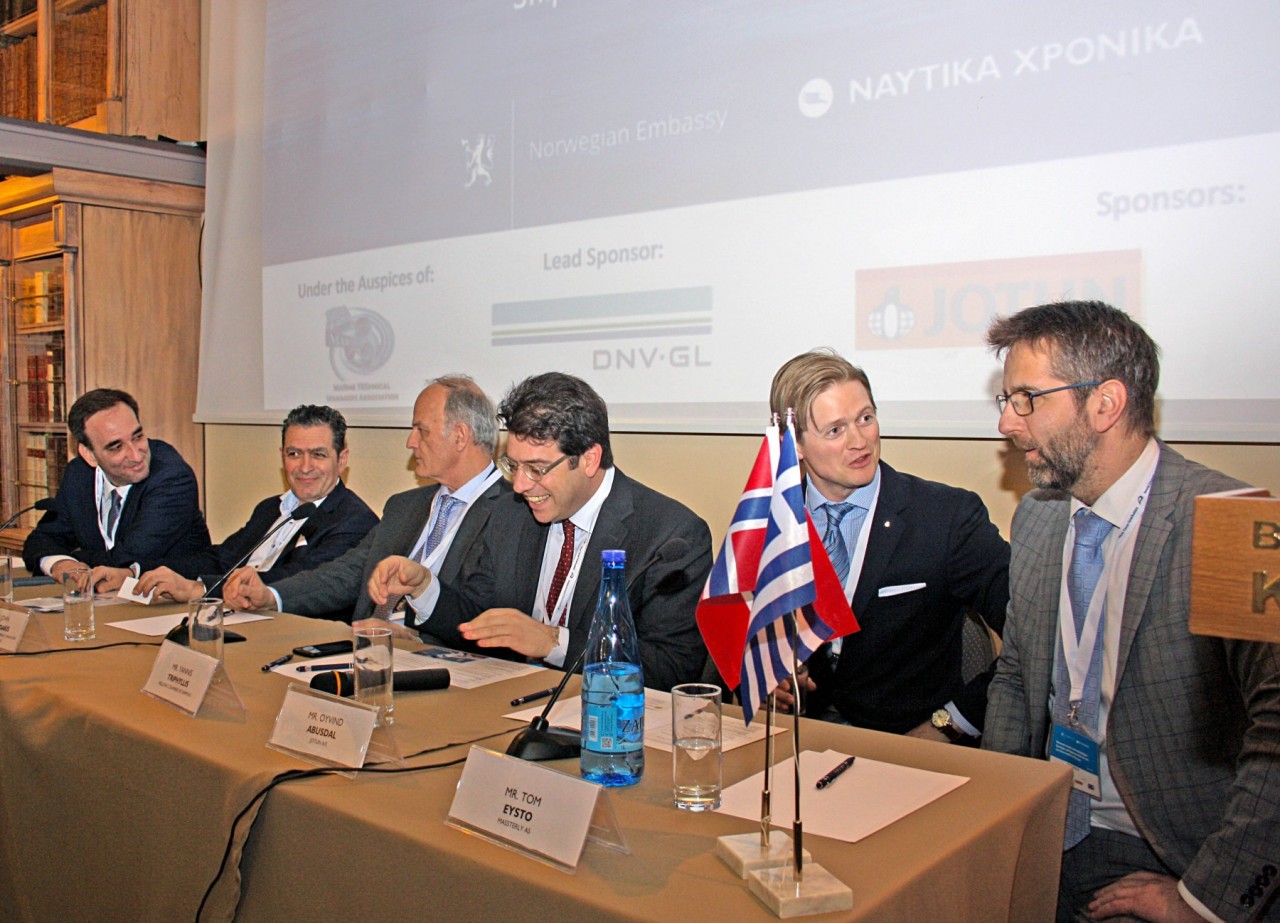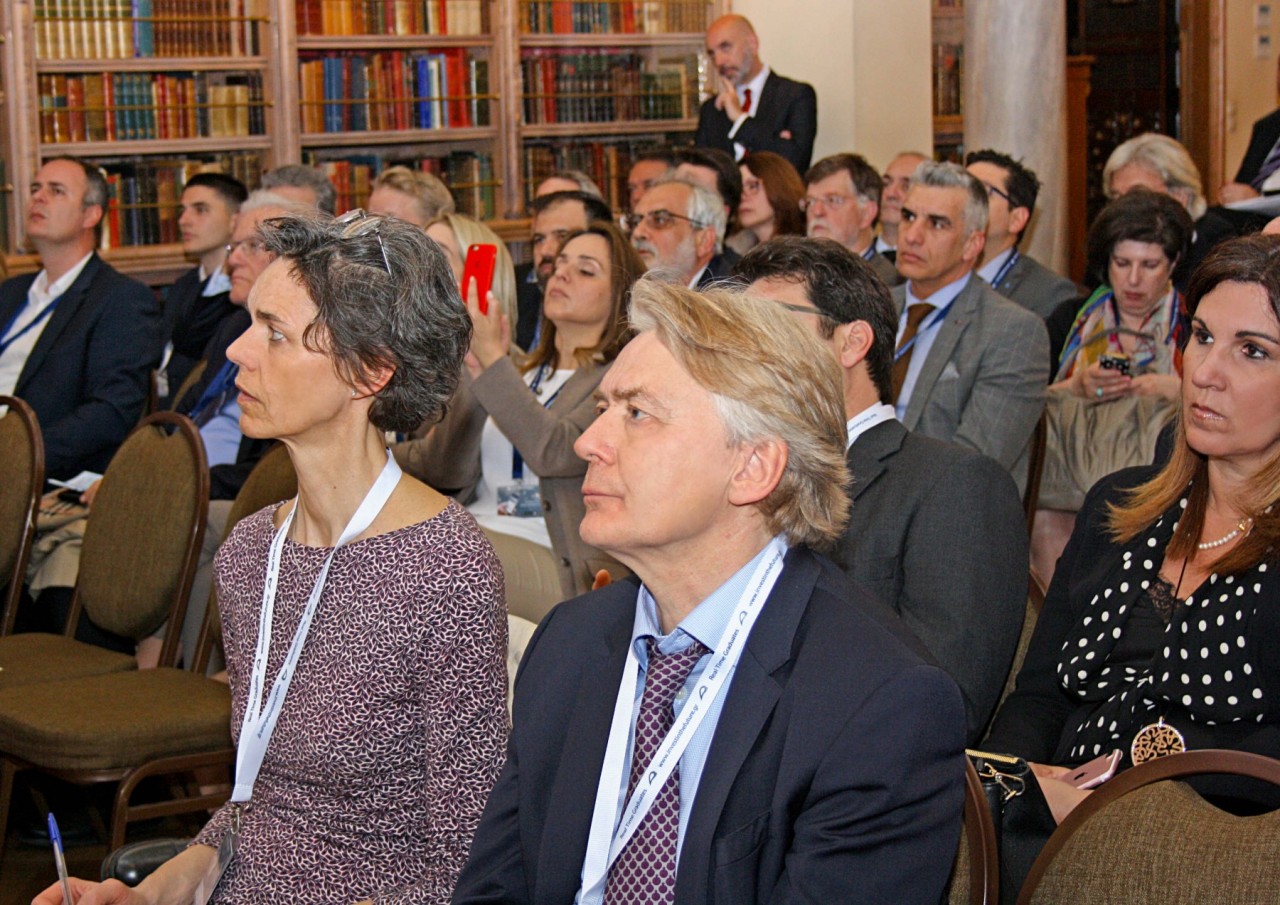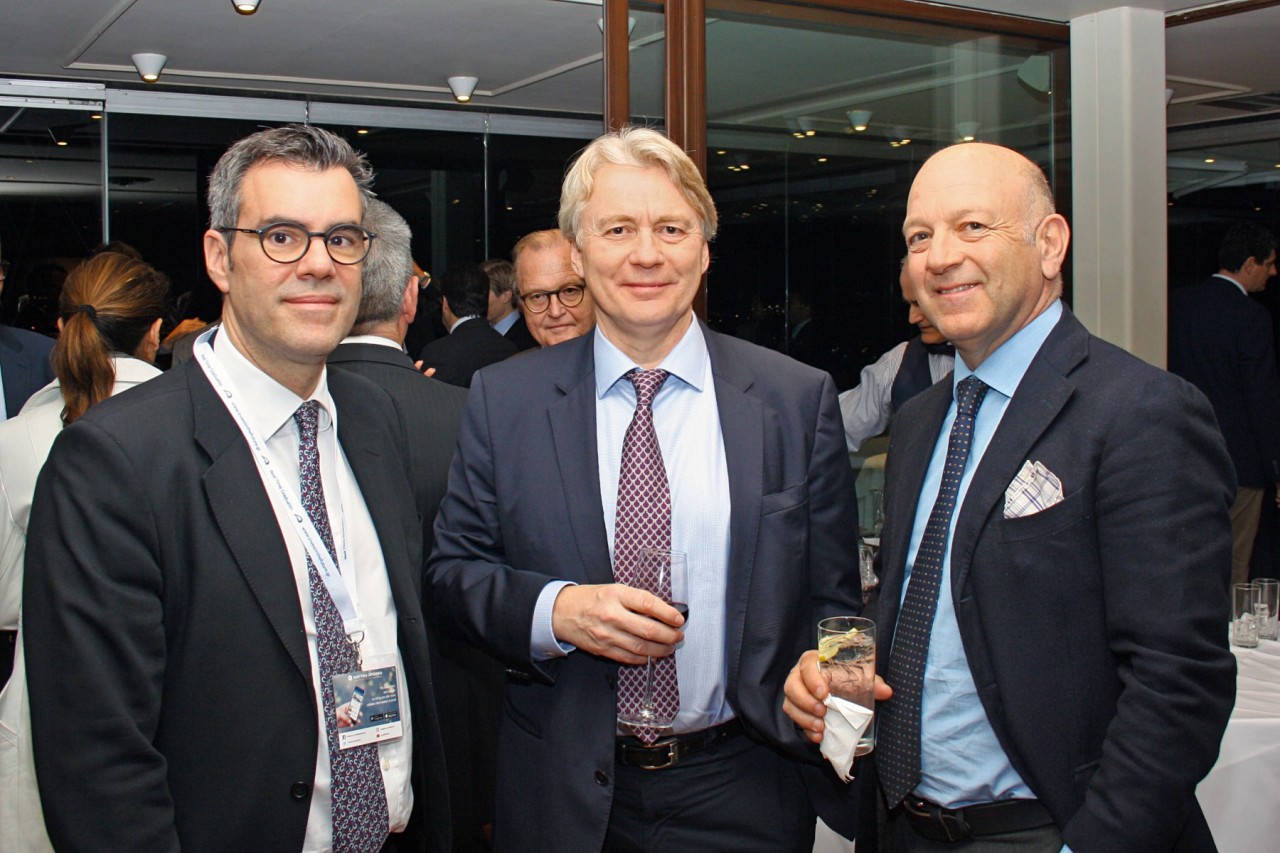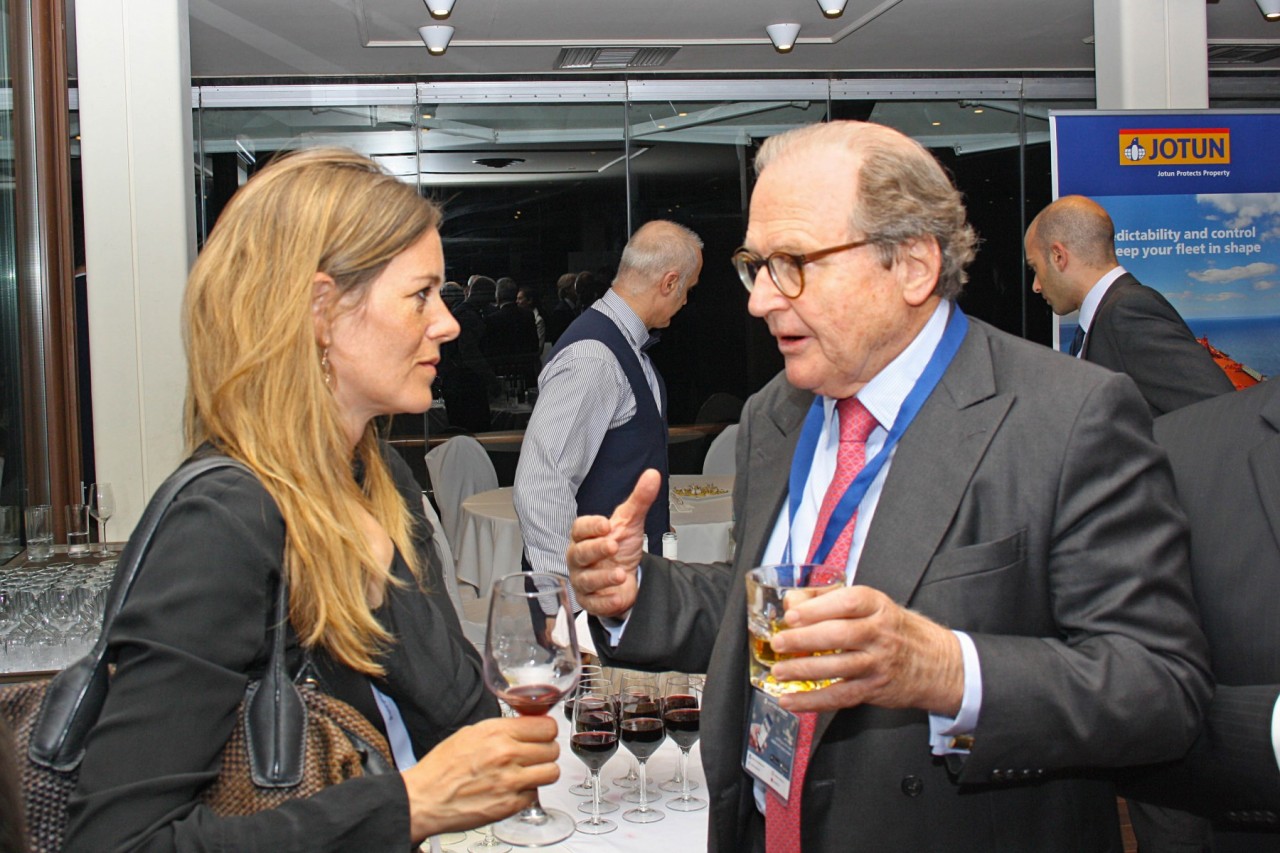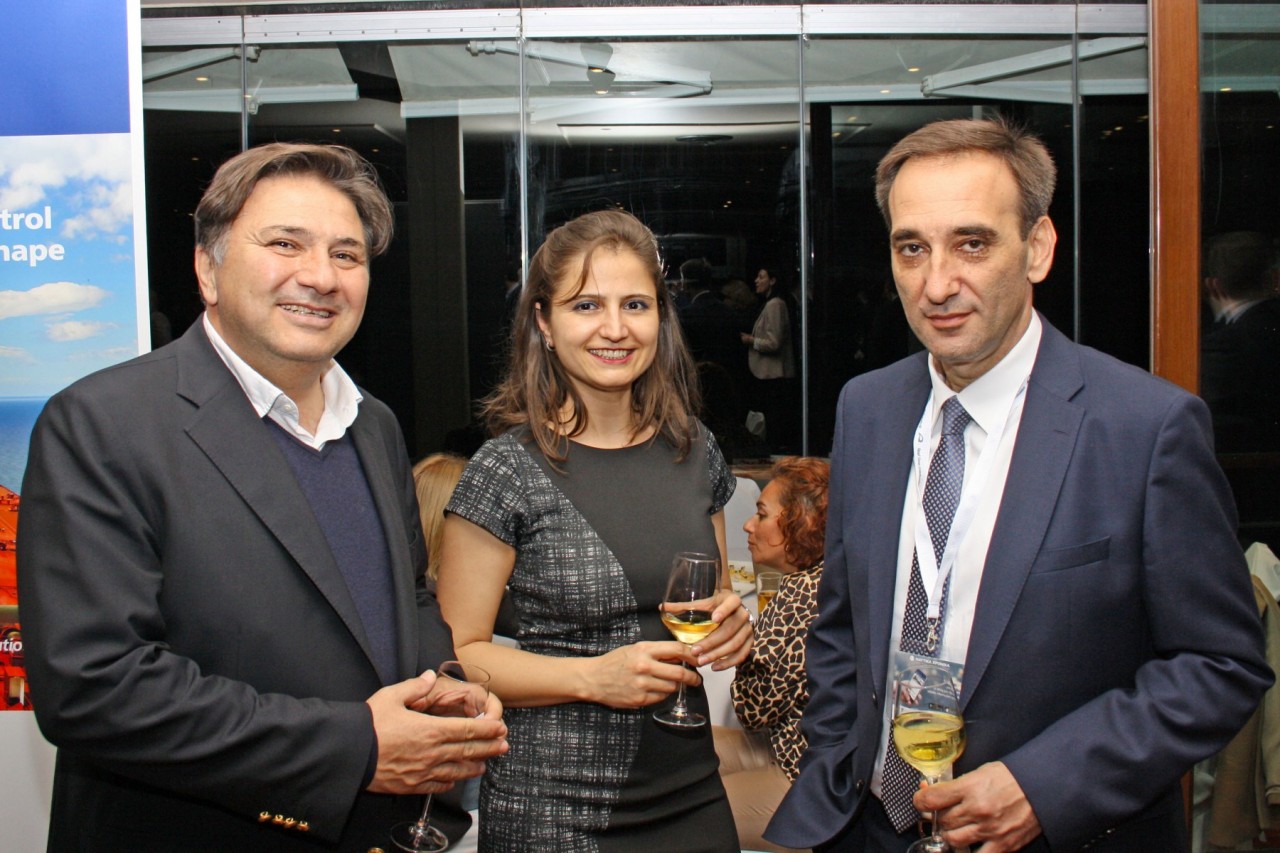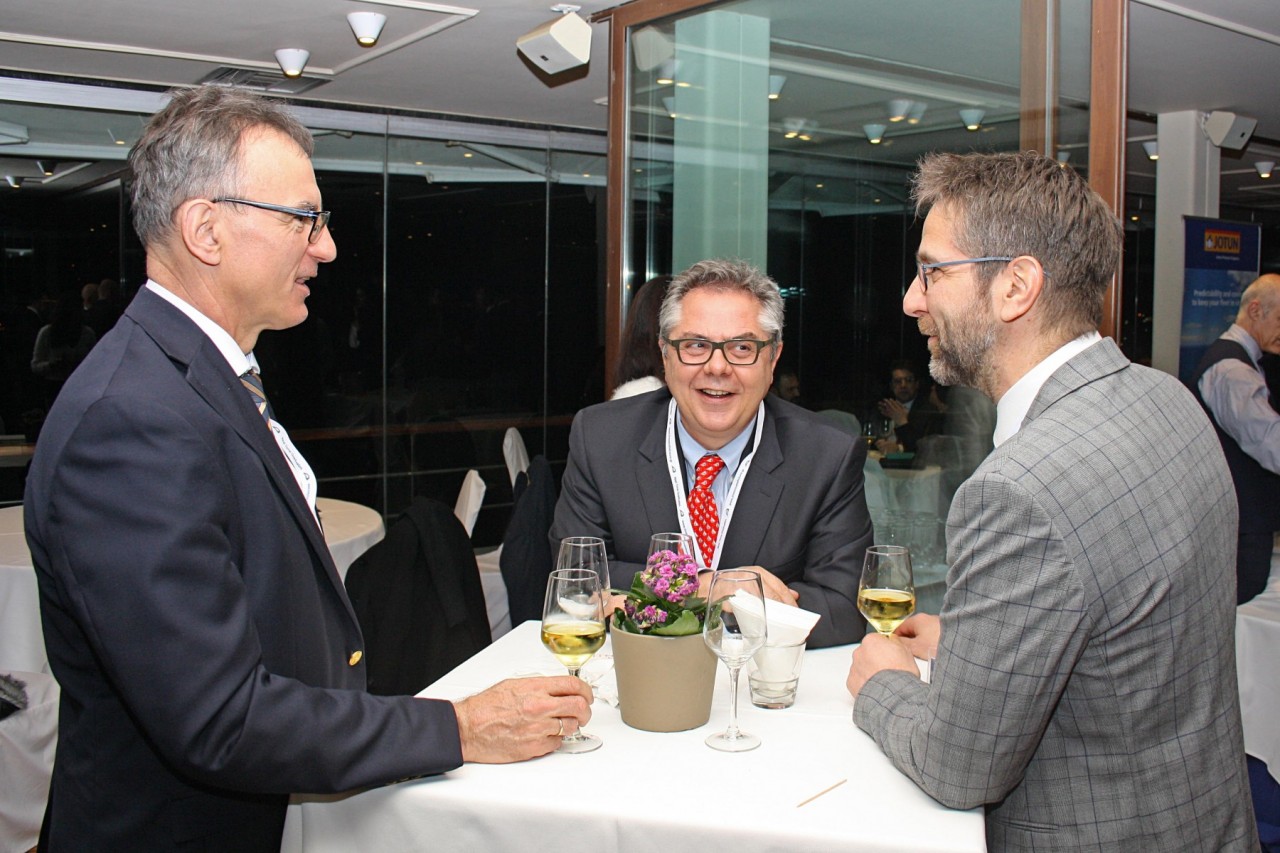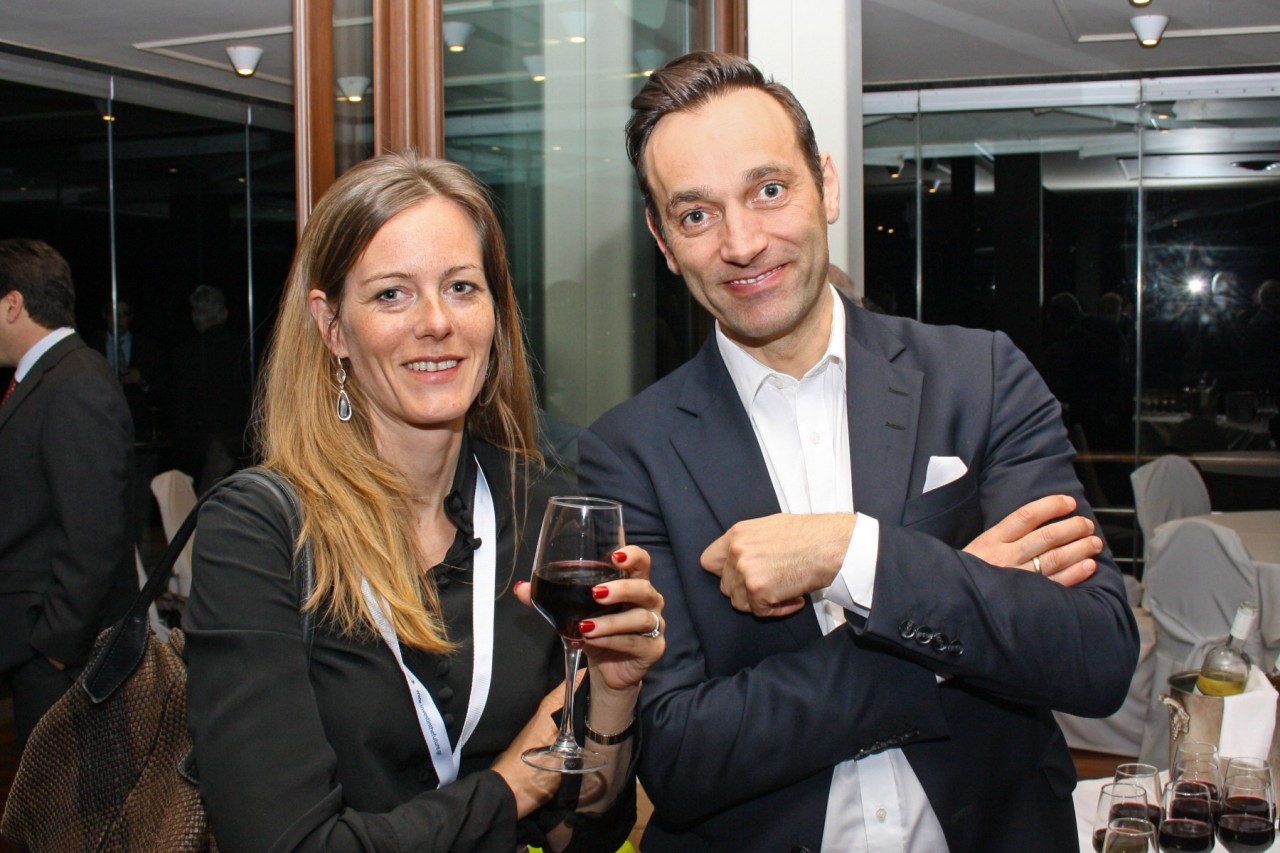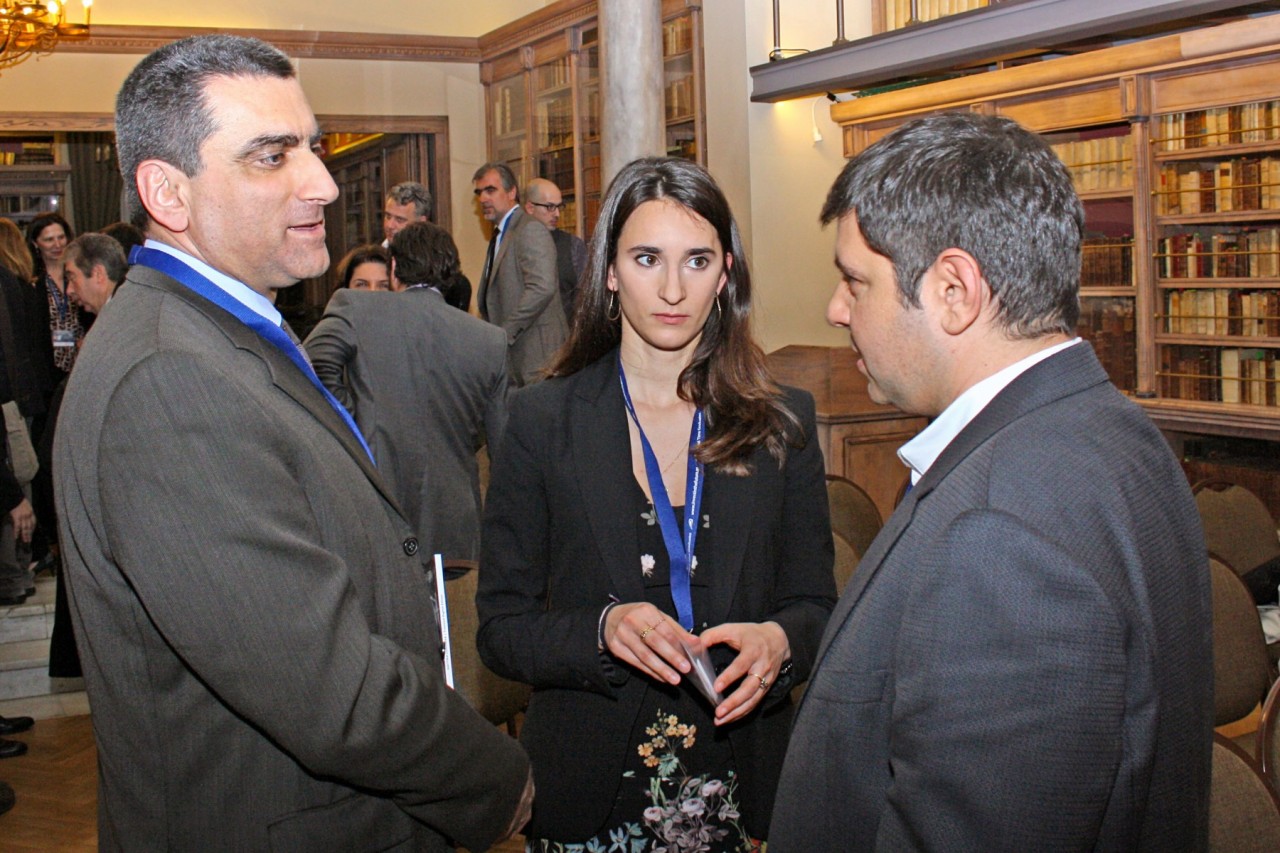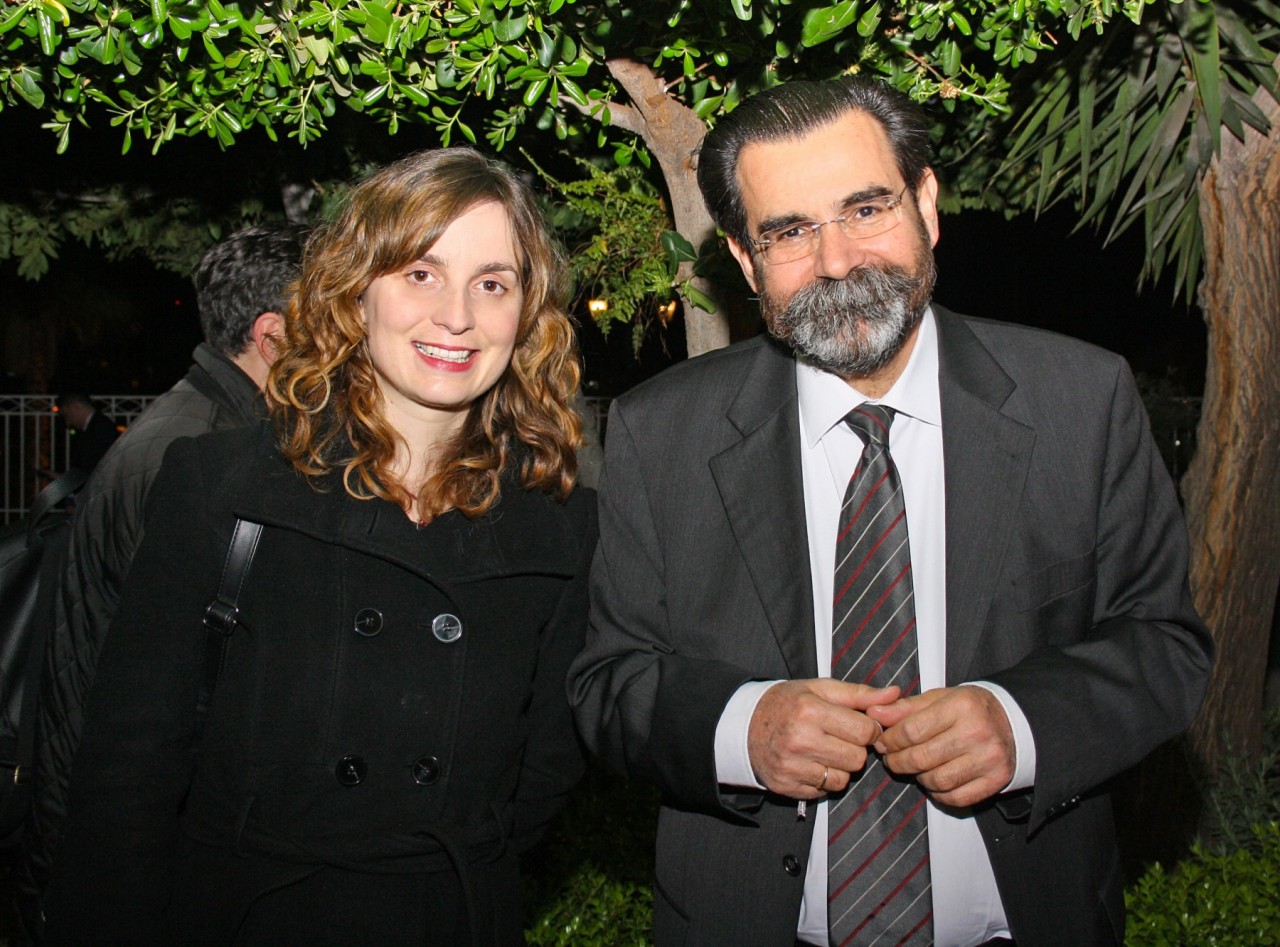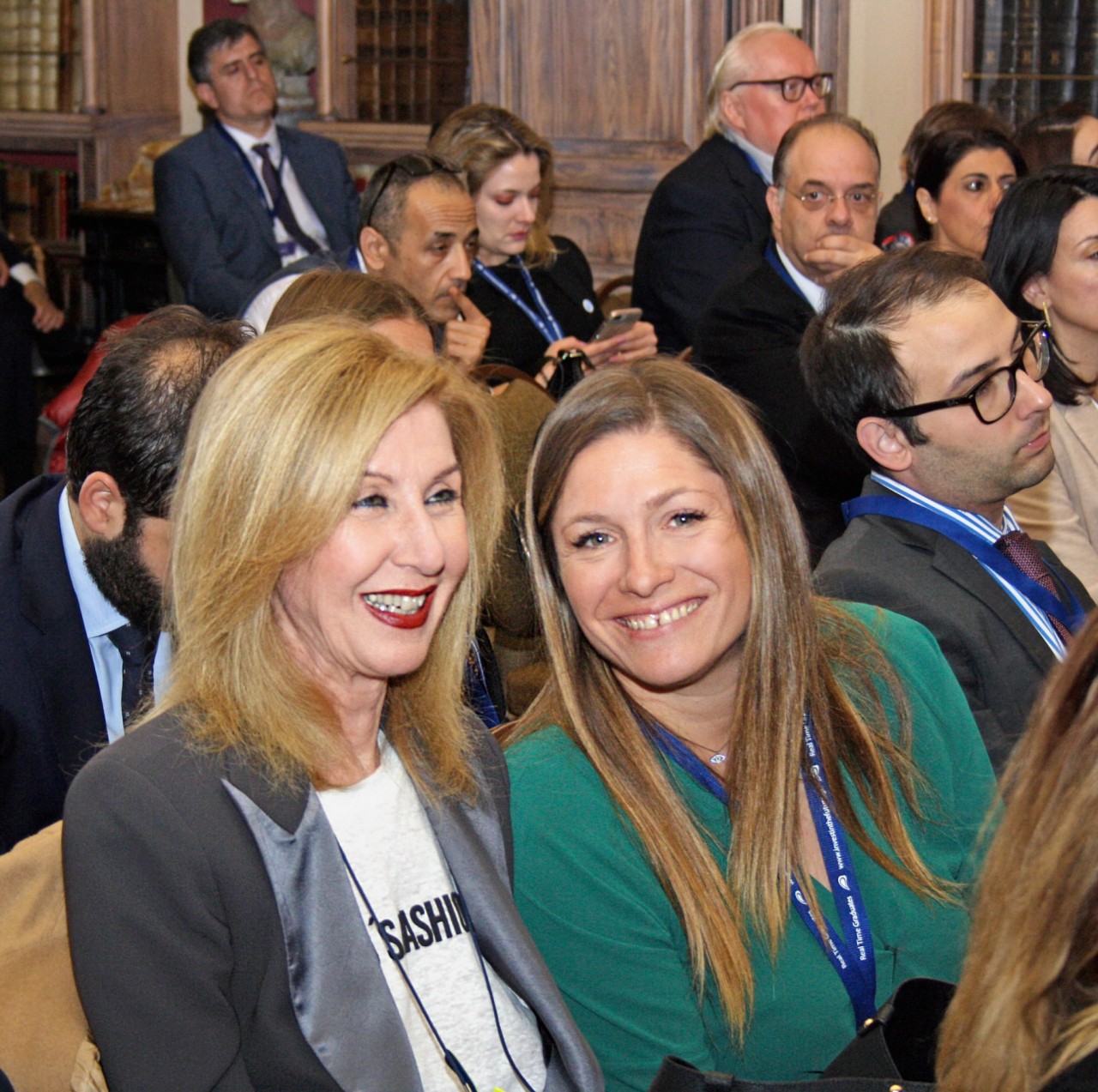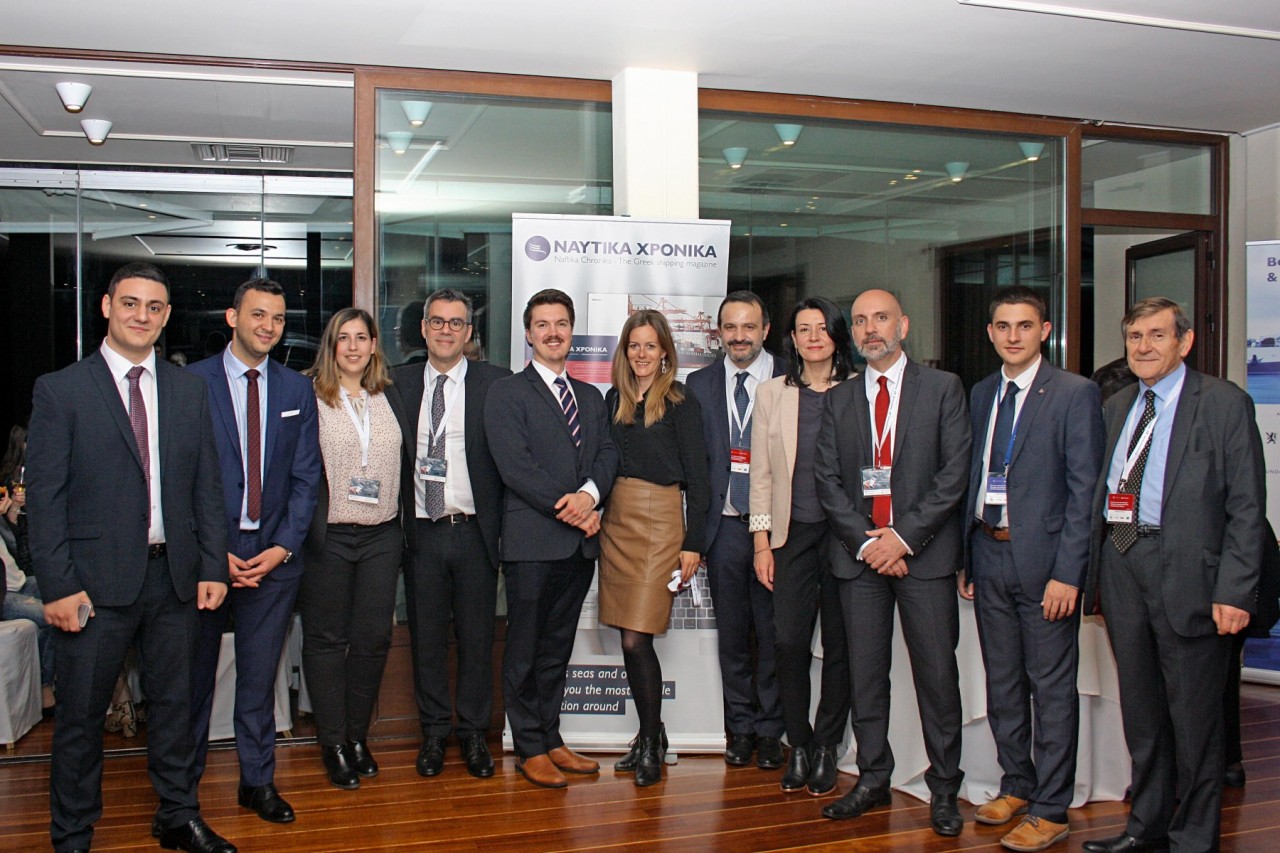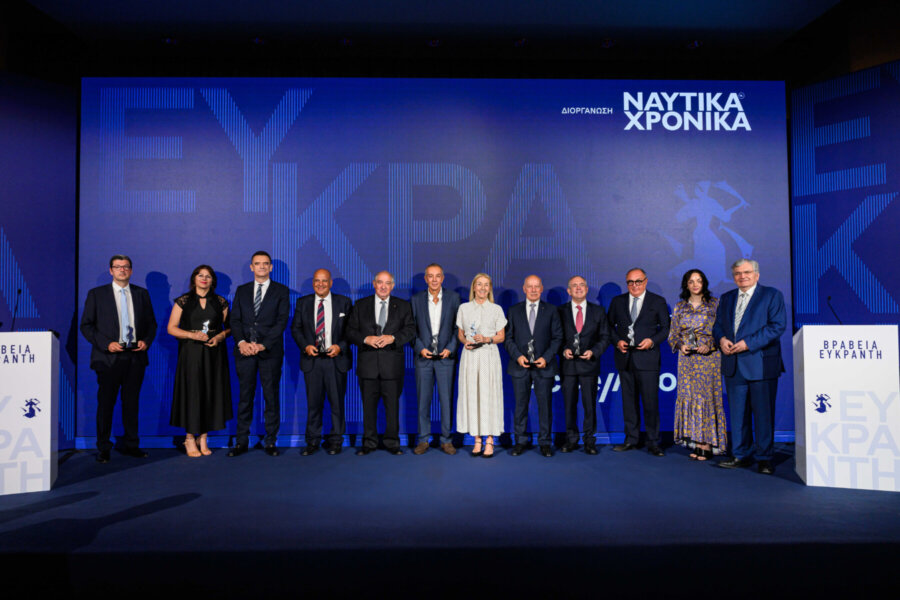
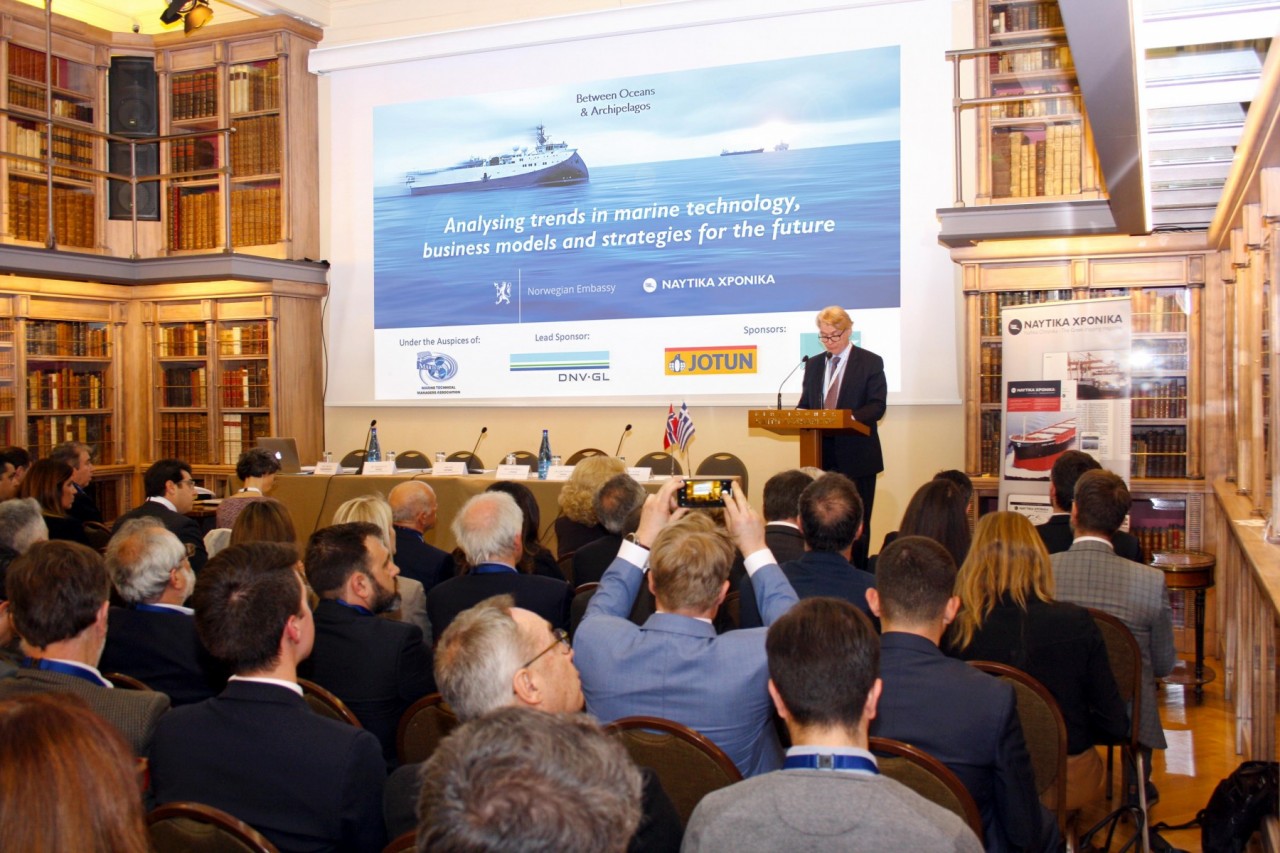
Greece and Norway: Synergies and opportunities for the leaders in European shipping
Greece and Norway: Synergies and opportunities for the leaders in European shipping

Technological developments in the global shipping industry and the opportunities that shipping has to offer are points of common interest for Greece and Norway. Within this framework, eminent representatives of the Greek and Norwegian shipping community came together to exchange knowledge and experience during an event titled “Between Oceans and Archipelagos: Synergies and opportunities for the maritime leaders of Europe” which was co-organized by the Royal Norwegian Embassy in Athens and Naftika Chronika.
The event took place on Tuesday, March 26, 2019, at the Aikaterini Laskaridis Foundation and was held under the auspices of MARTECMA. The issues raised during the event were related to the emerging technology trends in the shipping sector, the shipping companies’ strategic planning for the future and the forthcoming international environmental regulations.
At the beginning of the event, H.E. the Ambassador of Norway to Greece, Mr. Jørn Eugene Gjelstad, and Ms. Henriette Gulbrandsen, Senior Adviser (Central European Division), Norwegian Ministry of Foreign Affairs, gave short welcome speeches.
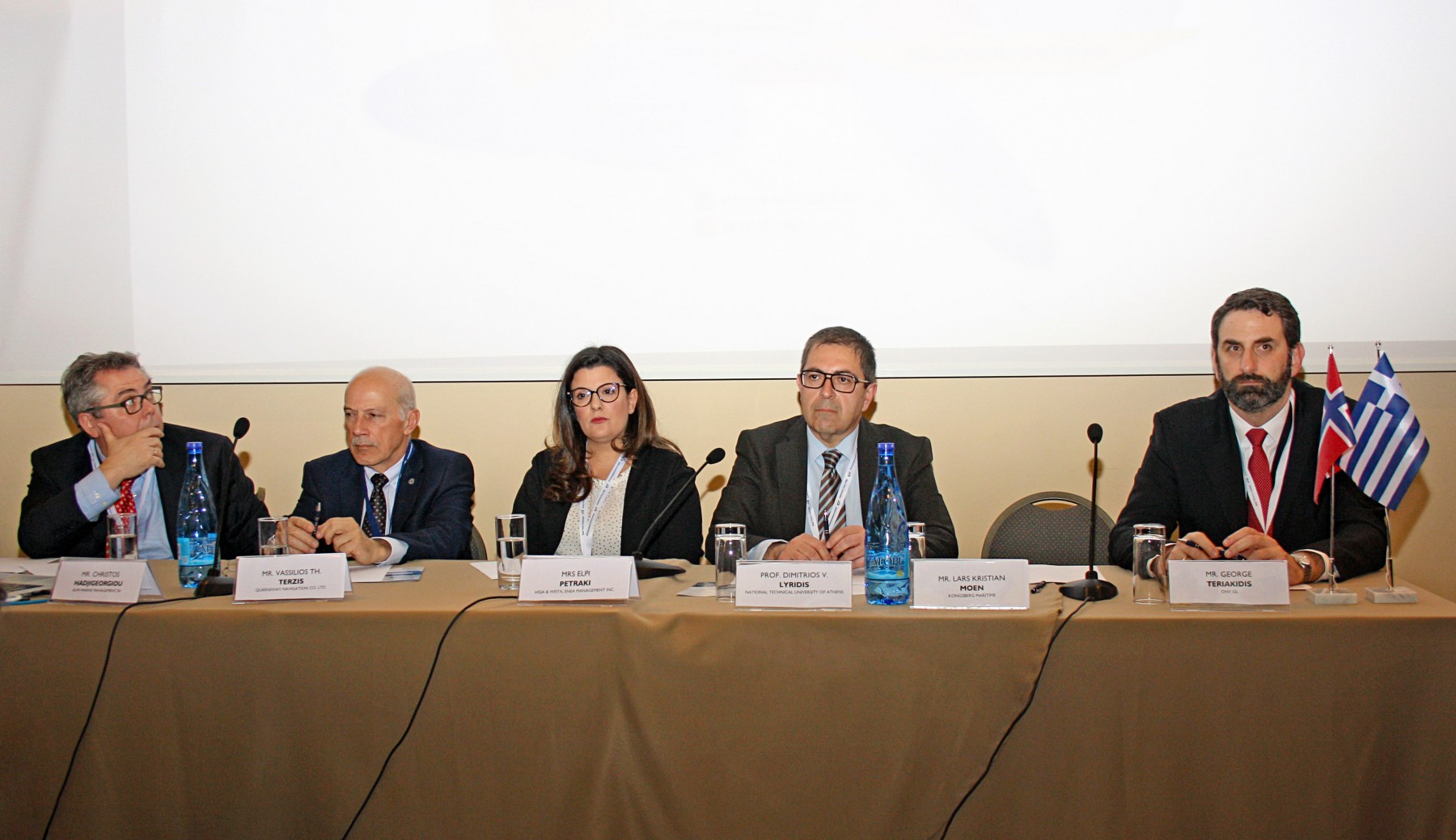
In the event’s first panel titled “Technologies of the Future: Electrification, LNG Fuel and Beyond,” short presentations were made by Messrs. George Teriakidis, Regional Business Development Manager of DNV GL and Lars Kristian Moen, Director of Advanced Maneuvering & Autonomy of Kongsberg Maritime. The participants in the ensuing discussion, which was moderated by Dr. Dimitrios V. Lyridis, Associate Professor at the School of Naval Architecture, National Technical University of Athens, included Mrs. Elpi Petraki, Vice President of HSSA & WISTA and Enea Management Inc., Mr. Vassilis Terzis, Managing Director of Queensway Navigation Co. Ltd., and Mr. Christos Hadjigeorgiou, Managing Director of Almi Marine Management SA.
Mr. Teriakidis presented a brief review of the energy sources available in shipping and the alternative marine fuels aimed at reducing airborne emissions from ships in the coming years. For his part, Mr. Moen spoke about the benefits that can arise from the further automation of ships, while he noted that the changes seen in the wider shipping industry in recent years had come mainly as a result of the forthcoming environmental regulations.
The discussion focused on the new environmental regulations, particularly the Sulfur Cap 2020, that poses a challenge to the shipping industry, and the speakers expressed their concerns about the risk the management companies are called upon to assume when assessing the available marine fuel options, and the problems arising from the increased investment cost.
For his part, Mr. Terzis pointed out that a large number of ships may not be ready for the new environmental regulations even if the implementation deadline for low-sulfur fuels is extended. He added, however, that for his company Gas Oil is the second-best solution to meet international environmental requirements since there will not be sufficient alternative marine fuels. He also noted that it is the end user who will bear the extra cost arising from the introduction of the new environmental regulations.
In his intervention, Mr. Hadjigeorgiou stated that for shipping operators, especially those operating smaller ships, scrubbers are not an alternative in order to comply with international environmental requirements. He also stressed that on the one hand, the IMO is not able to impose alternative marine fuels availability, and on the other hand, states have not provided for this availability. This situation resulted in many ships being equipped with scrubbers, which absorbed several billions of dollars without any environmental benefit, while in fact the produced sulfuric acid is released into the sea. Therefore, it is left up to the shipping industry to manage a situation without proper preparation by the states.
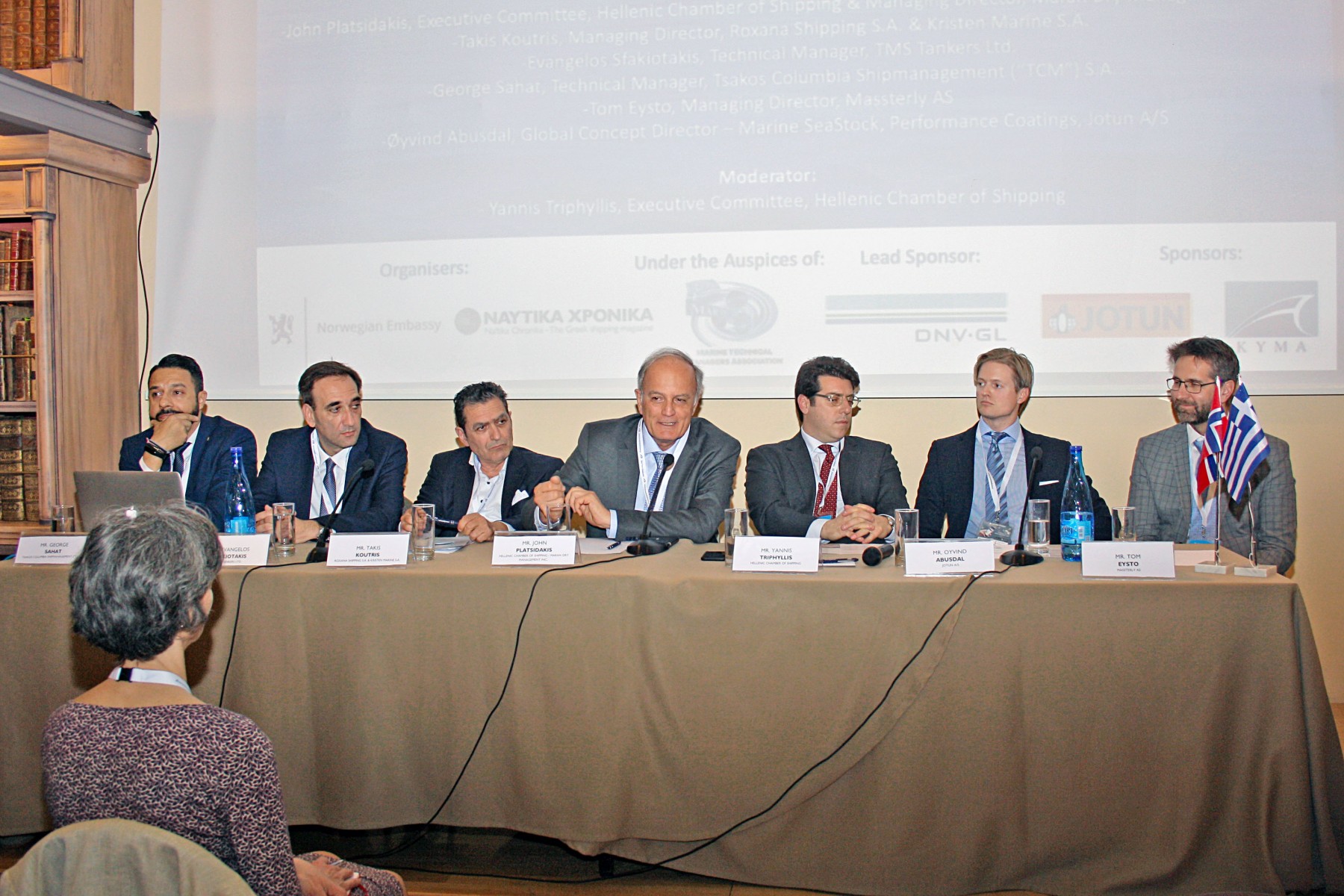
The second panel was about the management of the ships of the future. Presentations on the topic were made by Messrs. Tom Eysto, Managing Director of Massterly AS, which is the first autonomous ship management company, and Øyvind Abusdal, Global Concept Director, Marine SeaStock, Performance Coatings, Jotun A/S.
Messrs. John Platsidakis, Member of the Board of Directors of the of the Hellenic Chamber of Shipping and Managing Director of Maran Dry Management Inc., Takis Koutris, Managing Director of Roxana Shipping S.A. and Kristen Marine S.A., Evangelos Sfakotakis, Technical Manager of TMS Tankers Ltd., and George Sahat, Technical Manager of Tsakos Columbia Shipmanagement (“TCM”) S.A. commented on the presentations of the two speakers. The discussion moderator was Mr. Yannis Trifyllis, Member of the Board of Directors of the Hellenic Chamber of Shipping.
During the discussion, Mr. Platsidakis pointed out that the increasing difficulties faced by shipping companies are not due to the environmental regulations but to the legislators themselves, adding that we must be prepared for new environmental regulations in the future.
Mr. Koutris then took the floor, stressing that the international business environment, the legislative framework, technology, and human resources are a multifaceted challenge for shipping as everything is changing rapidly and uncontrollably while shipping lacks a holistic approach and consistency/continuity in its implementation. At the same time, he noted that often there is no suitable technology to support the new regulations and there is always a time lag in the education of the human resources, which are scarce as it is.
For his part, Mr. Sfakiotakis pointed out the challenges facing a company in view of the new environmental regulations, while placing particular emphasis on the investments it has to make for the construction of new ships and for retrofitting its existing fleet.
Mr. Sahat then spoke about the benefits new technologies can bring to the shipping industry, and addressing Kongsberg’s representative he wondered whether autonomous ships could be operationally efficient without the interaction of the human element. Also, Mr. Sahat did not fail to mention the challenge of cyber attacks.
For his part, Mr. Trifyllis pointed out that at this stage, shipping is faced with artificial rather than “natural” obstacles, while the emphasis has shifted from the safe and qualitative navigation of the seas or managing “market” risks towards managing the harmonization with regulations and the institutional framework, whether environmental or financial (e.g., Basle IV), or technological.
The third and last panel of the event co-organized by the Royal Norwegian Embassy in Athens and Naftika Chronika addressed issues pertaining to digitization in shipping, and the role played by Big Data in the day-to-day operational management of ships. The speakers included Mr. Anders G. Hovelsrud, Insurance Director, Norwegian Shipowners’ Mutual War Risks Association (DNK) and Mr. Erik Hagestuen, Managing Director, Kyma AS.
The discussion that followed was moderated by Mr. George Teriakids, Regional Business Development Manager, DNV GL and included Messrs. Theofanis Sallis, Head of Operations & Technology, GasLog LNG Services Ltd, Panos Kourkountis, Technical Director, Sea Traders SA, Theodoros Economopoulos, Manager of Euronav Ship Management Partners, and Mrs. Maria Tsobanoglou, Energy Performance Manager, Pantheon Tankers Management Ltd & Alpha Bulkers Shipmanagement Inc.
During the discussion, the speakers focused on the advantages of shipping connectivity emphasizing that there are still objective difficulties in integrating data from sensors into day to day decision-making when managing ship operations from the office.
Mrs. Tsobanoglou pointed out that digitization significantly improves the operations of a company, while the way it is utilized depends on the structure and organization of the company, but the main need is to control fuel consumption on ships as a starting point towards increasing fleet efficiency. According to her, it is very important to choose a system that will ensure the collection of digital data in a qualitative and controlled way, while it is also necessary to have proper programming and appropriate equipment but also to train for crews and office staff on the possibilities which digitization can offer.
Mr. Kourkountis said that on-line monitoring and Big Data are ante portas and shipping should be prepared for full transparency as in the near future all stakeholders in the shipping industry, mainly charterers and authorities, will demand access to some of these data. He added that the use of digital tools offers a shipping company the ability to fully control its fleet and maintain important data.
Mr. Economopoulos emphasized the need to increase knowledge and awareness among shipping company crews and onshore personnel with regard to the processing of Big Data. He also referred to the fragmentation of management programs for data obtained globally, as there are several management programs used for the different types of Big Data, but most of the time there is no connectivity between them.
For his part, Mr. Sallis said that for several years now, GasLog has been quite familiar with the use of advanced technologies such as sensors and Big Data as it manages LNG carriers which are among the most technologically advanced. Mr. Sallis added that the use of digital tools benefits management companies because they offer safe and efficient ship operation, but that data analysis and interpretation, which would maximize benefits, remain a challenge for the industry.
It should be noted that the event was attended, among others, by Branch Inspector Ioannis Zikas, Rear Admiral, as the representative of the Commandant of the Greek Coast Guard, Messrs. Charalambos Fafalios, Chairman of the Greek Shipping Co-Operation Committee, Georgios Makrymichalos, Deputy Treasurer of the Union of Greek Shipowners (UGS), George Angelakis, Board of Directors Member, UGS, Mrs. Katerina Peppa, Director, UGS, and a number of high-level executives of the maritime community.

ΝΧ
Συντακτική ομάδα Ναυτικών Χρονικών


Σημάδια αισιοδοξίας για την παγκόσμια παραγωγή χαλκού
Η First Quantum Minerals Ltd. άρχισε να μεταφέρει εκ νέου αποθέματα χαλκού από το ορυχείο της στον Παναμά, 19 μήνες μετά το κλείσιμο της…
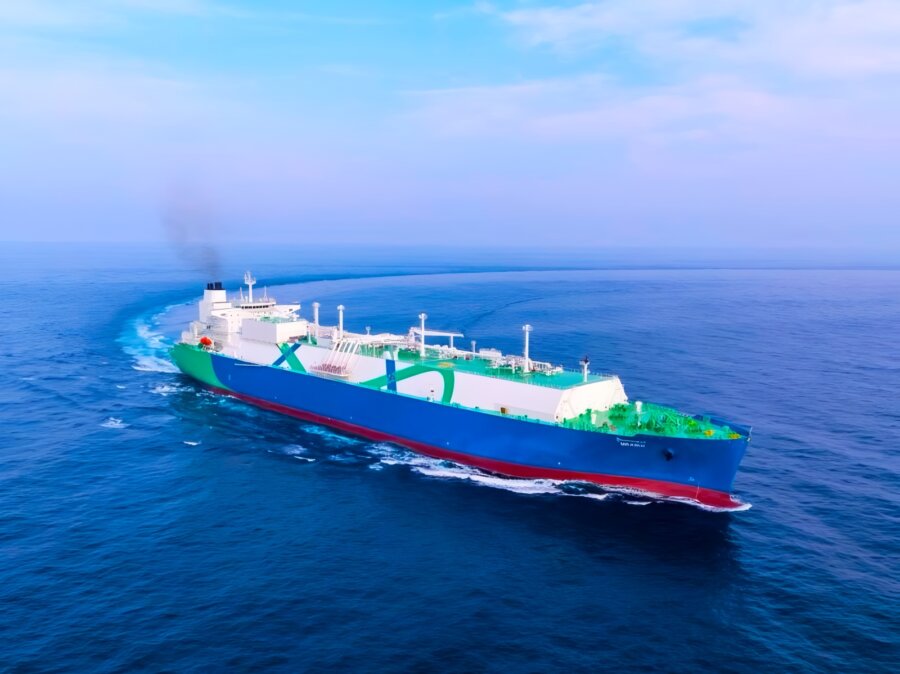
Ενίσχυση του υπό ναύλωση στόλου της QatarEnergy
Την παραλαβή ενός νεότευκτου LNG carrier, που θα ναυλωθεί στον καταριανό κολοσσό QatarEnergy, ανακοίνωσε η Knutsen LNG France. To «MRAIKH», μεταφορικής ικανότητας 174.000 κ.μ.,…

Αλλαγή σελίδας για τη Louis Dreyfus Armateurs
Σε νέα εποχή εισέρχεται πλέον η γαλλική ναυτιλιακή εταιρεία Louis Dreyfus Armateurs (LDA). Σύμφωνα με ανακοίνωσή της, η οικογένεια Louis Dreyfus, μέτοχος της LDA,…
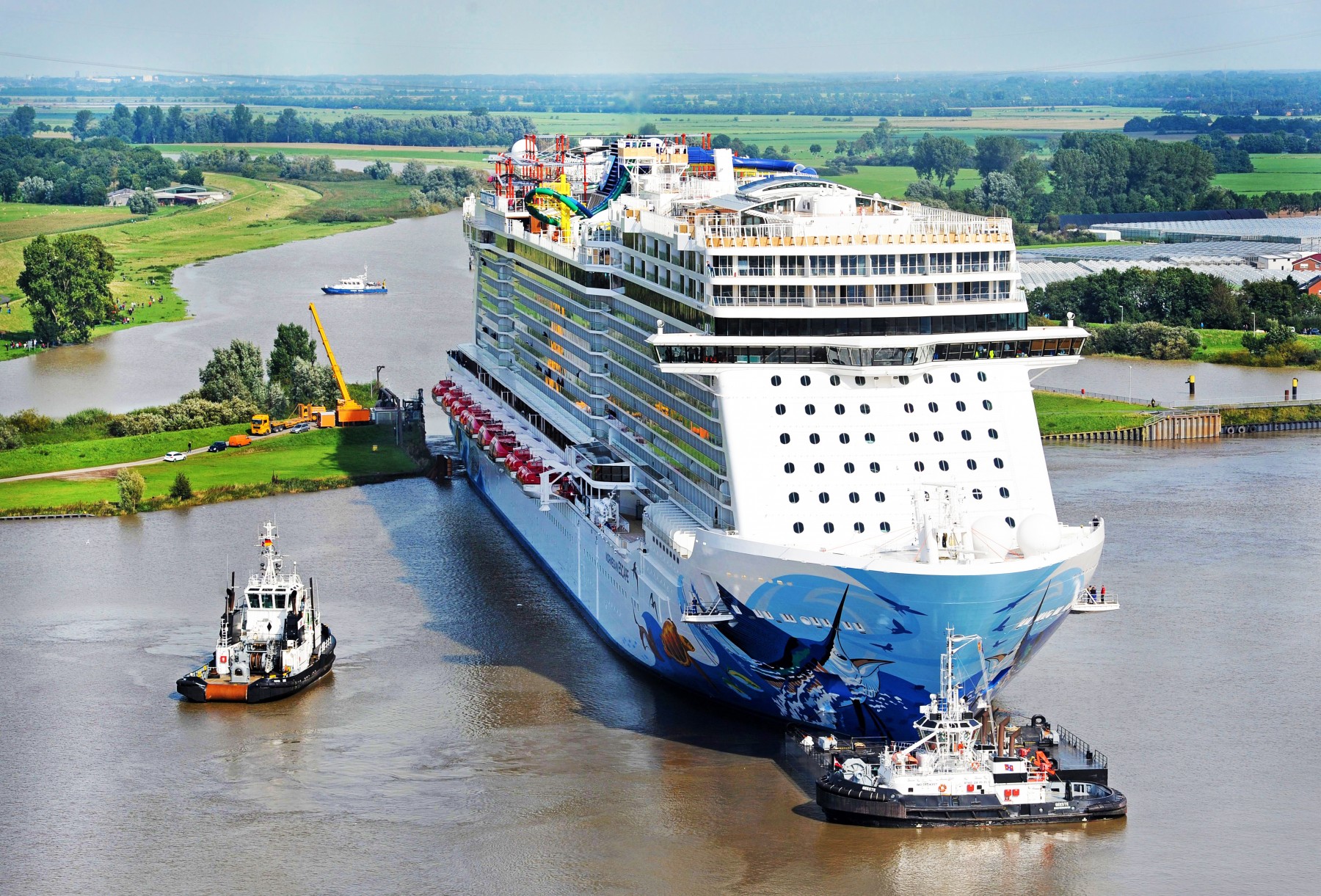
Στοπ των Καννών στα μεγάλα κρουαζιερόπλοια
Μπλόκο στα μεγάλα κρουαζιερόπλοια στήνουν οι Κάννες, με το δημοτικό συμβούλιο του γαλλικού θερέτρου να λαμβάνει την απόφαση να απαγορεύσει από το επόμενο έτος…
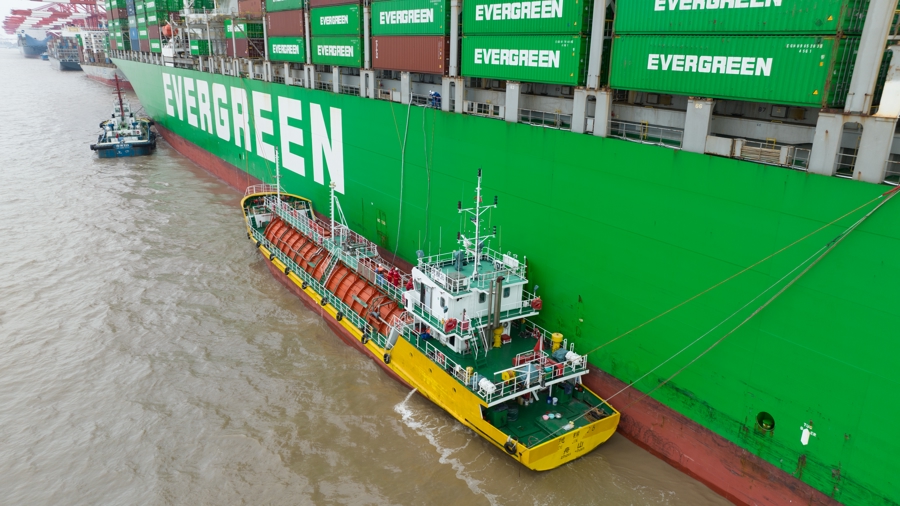
Πράσινη επανάσταση στη μεταφορά CO₂
Η Σαγκάη σημείωσε πρόσφατα μια σημαντική επιτυχία, ολοκληρώνοντας την πρώτη στον κόσμο μεταφορά υγρού CO₂ από πλοίο σε πλοίο. Η μεταφορά έλαβε χώρα στο…
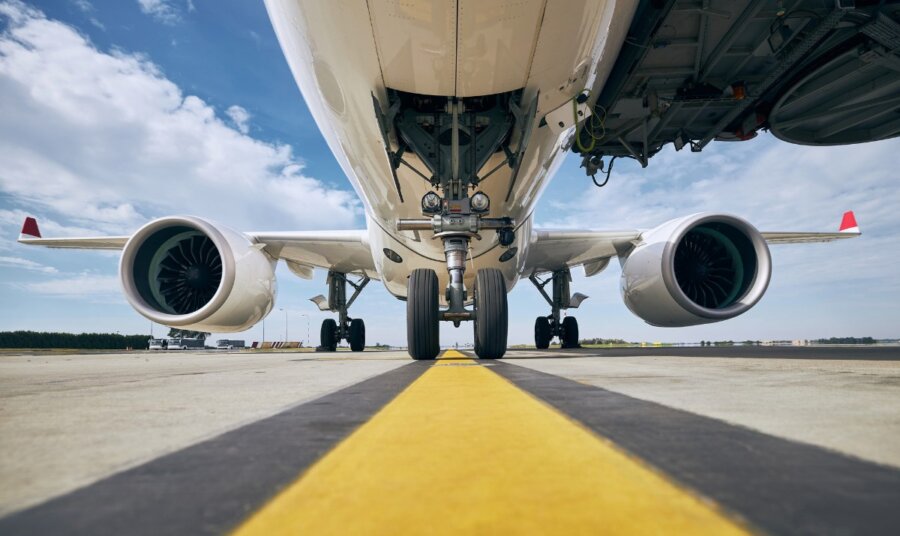
Μέτρα της Τουρκίας για την ενίσχυση της χρήσης SAF
Νέες απαιτήσεις με αποδέκτη τόσο τις αεροπορικές εταιρείες όσο και τους προμηθευτές jet fuel θα επιβάλλει η Τουρκία προκειμένου να ενισχυθεί η υιοθέτηση βιώσιμων…
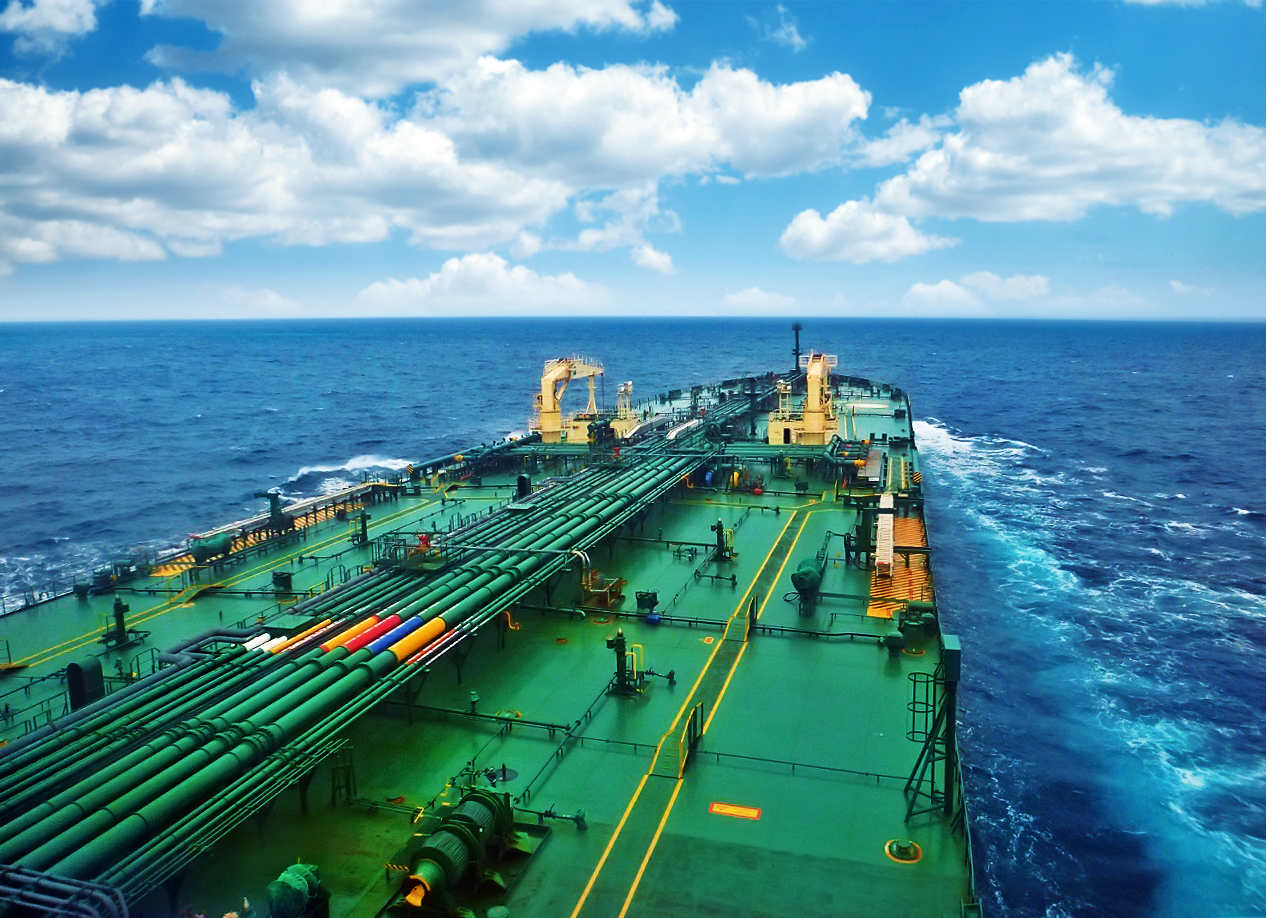
Ανακατατάξεις στον ορίζοντα για τα δεξαμενόπλοια
Εν μέσω συθέμελων γεωπολιτικών και εμπορικών ανακατατάξεων, οι μεσοπρόθεσμες προοπτικές για τις αγορές πετρελαίου μοιάζουν θολές. Στο πλαίσιο αυτό, πρόσφατη έκθεση της ναυλομεσιτικής Gibson…
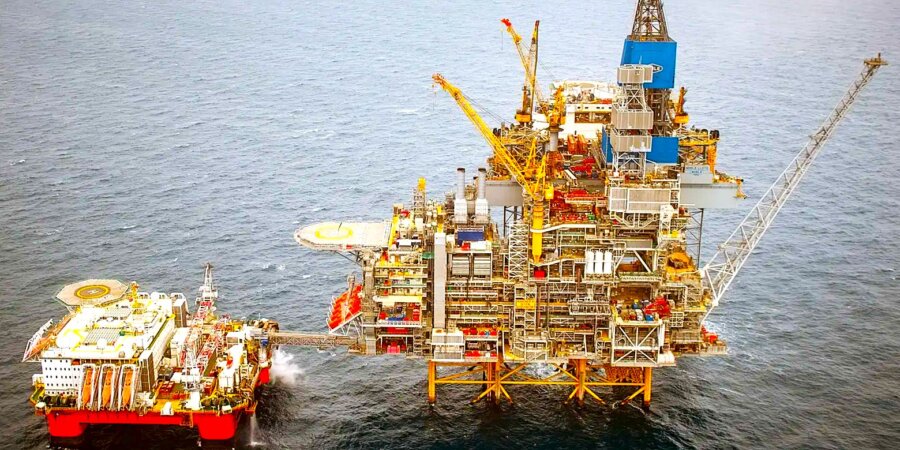
Equinor: Ανακάλυψη πετρελαϊκού «θησαυρού» στον Αρκτικό Ωκεανό
Στην ανακάλυψη ενός γιγαντιαίου κοιτάσματος πετρελαίου προέβη πρόσφατα o νορβηγικός κολοσσός Equinor. Συγκεκριμένα, σύμφωνα με δημοσίευμα του Reuters, η Equinor ανακάλυψε ένα νέο κοίτασμα…
